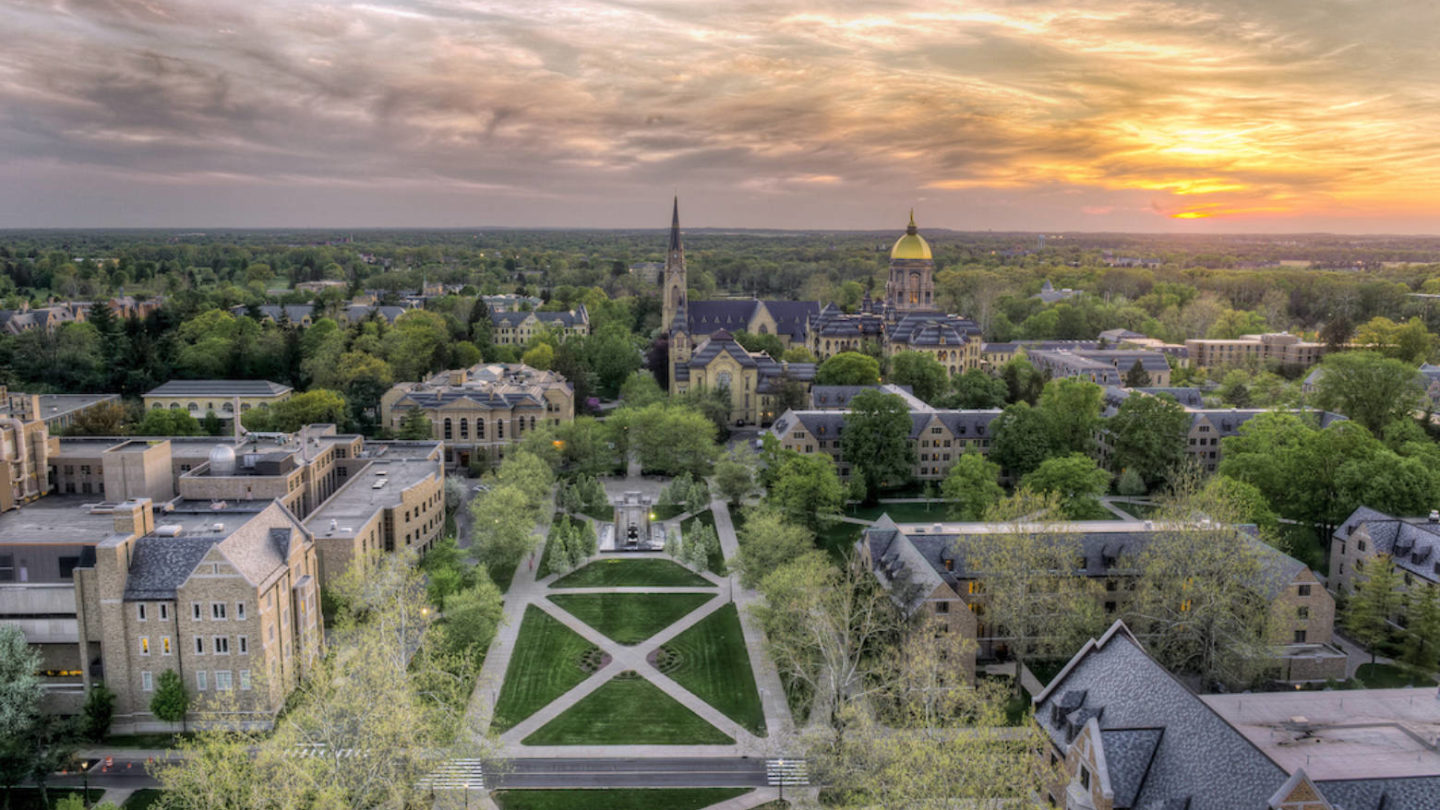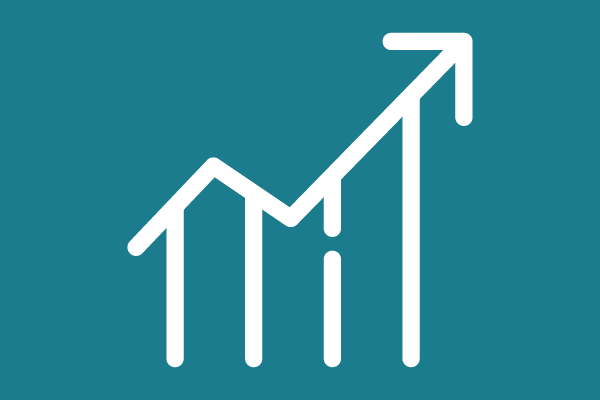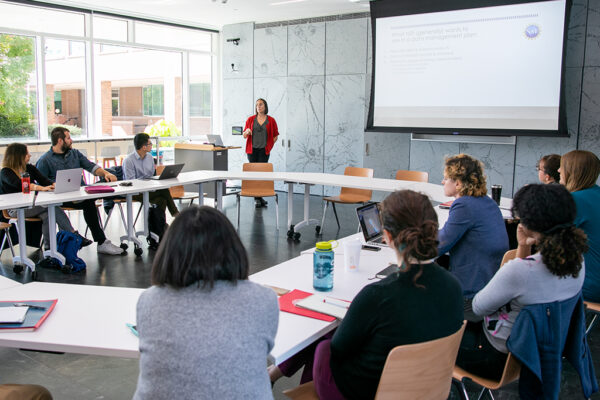

Department of Technology, Operations, and Statistics | Doctoral Program in Information Systems
Doctoral program in information systems.
- Overview of the Doctoral Program in Information Systems
Program Requirements
Doctoral Courses
- Doctoral Students and their Research
- Information Systems Faculty
Overview of the IS Doctoral Program
Mission: To educate and train scholars who will produce first-rate IS research and who will succeed as faculty members in first-rate universities. We offer tracks in technical perspectives on IS, economic perspectives on IS, and organizational/management perspectives on IS. Admissions and performance: We enroll an average of three students each year out of more than 100 highly qualified applicants. Students enrolling typically have GMATS over 700 or GREs over 1400. International students typically have TOEFLs higher than 640. Our students are highly competitive within Stern and nationally. Recently our students have received school-wide awards as "outstanding doctoral students." They have won acceptance at doctoral consortia sponsored by the Academy of Management and the International Conference on Information Systems. And they have won national dissertation research competitions.
Advising and evaluation: The IS doctoral program faculty director advises all first-year doctoral students. During the first year students have many opportunities to get to know the research interests of all departmental faculty. By the beginning of the second year, students have selected a concentration advisor who will guide them through the comprehensive exam process and up to the thesis stage. By the middle of the third year students will have selected a thesis advisor. Each year every student submits a statement of intellectual progress to his/her advisor. All faculty meet to review the progress of all students in a day-long meeting each year. At this time, the student's intellectual progress is reviewed and plans for the following year are considered. The results of this review include a formal letter to the student assessing the previous year's work and offering guidance for the following year's work. All students take a comprehensive written and oral exam at the end of the second year. Students defend their thesis proposal by March of their fourth year and defend their completed dissertation at the end of the fourth year or during the fifth year.
Research and interaction with faculty: The heart of the IS doctoral program is immersion in a community of researchers. Every student has a formal research apprenticeship with one or more faculty members each year. Every student participates in formal and informal research seminars each week with departmental faculty and visitors. Every student presents research in progress and works toward producing publishable papers, usually with a faculty co-author. Students learn to be researchers by doing research. They learn to be research colleagues by working with others and critiquing their research.
Placement record: In the past ten years, our graduates have accepted faculty positions at such schools as University of California at Berkeley, Hong Kong University of Science & Technology, University of Maryland, University of Minnesota, University of Texas at Austin, the University of British Columbia, National University of Singapore, The Wharton School and the University of Cambridge, UK. Please click on the links on the right to learn how to apply, to attend an information session, and to contact the Stern School Doctoral Office.
Natalia Levina Coordinator, Information Systems Doctoral Program IOMS Department
Back-to-Top
All students take a common core of courses during their first year which provides an overview of the major research areas in IS and the fundamental knowledge necessary for specialized course work in the second year. In the second year students take specialized course work in one of three concentrations: technical perspectives, economic perspectives, behavioral/managerial perspectives.
Mandatory Breadth Courses (3)
- Behavioral Research Methods
- Micro-economics
- Technical Foundations
- Each student is required to take 1 Probability and 1 Statistics course, from a list of approved courses.
- Technical Research in IS
- Economics Research in IS
- Behavioral/Managerial Research in IS
- Research Apprenticeship
YEAR TWO - Each student chooses one concentration track
Technical Track:
- A programming requirement, may be satisfied in a variety of ways
- Honors Analysis of Algorithms
- Artificial Intelligence
- Optimization
- Database Systems
- Machine Learning/Data Mining
- Other courses based on student's interest
- Research apprenticeship
Economics Track:
- Mathematical Methods for Economists
- Econometrics
- Game Theory
- Students will take elective courses in the Stern Economics Department, at the Graduate School of Arts and Sciences, in Operations Management, Statistics, or at Courant as specified in consultation with the advisor
Behavioral/Managerial Track:
- Any two of the following four Stern Management Department Courses
- Organizational Behavior
- Managerial Cognition
- Organizational Theory
- At least one research methods or statistics course beyond the first year courses.
- Students may take doctoral level courses in Psychology, Sociology, Political Science, Public Policy, History, Education, or Law.
- Electives in the area of interest
- Thesis research
- Teaching apprenticeship (in year 3 or 4)
- Teaching one course (in year 3 or 4)
- INFO-GB.3345 (B20.3345) Doctoral Seminar in Digital Economics (offered in Spr 2012) This course introduces students to scientific paradigms and research perspectives related to the economics of information technologies. Topics in 2012 include information goods, piracy, digital rights management, network economics, sponsored search auctions, user-generated content, contagion in networks, technological innovation, IT productivity, the digital commons and online privacy.
- INFO-GB.3382 (B20.3382) Research Seminar on IT and Organizations: Social Perspectives (offered in Spr 2012) The course introduces students to sociological and organizational literature on the role of Information Technology in organizations and society.
- INFO-GB.3383 (B20.3383) Networks, Crowds & Markets
- INFO-GB.3386 (B20.3386) Technical Foundations of IS
- INFO-GB.3355 (B20.3355) Behavioral Research Methods
- INFO-GB.3391 (B20.3391) Research Seminar in Data Science (offered in Spr 2012) In this course we will take a deep dive into selected topics in data science. The focus will be two-fold. First, we will read textbook segments, classic papers, and new research, with the goal of understanding research in data science. Second, we will study the actual practical application of data science methods to extract knowledge from large-scale data. We will cover topics such as machine learning, data mining, information retrieval, text classification, sentiment analysis, similarity analysis, network analysis, graphical models, Bayesian models, topic models, model evaluation, crowd-sourcing and micro-outsourcing, massive-scale data processing, reducing data for analytic purposes, and more. The selection of which topics are covered in a particular semester will be based on: (i) the current research and business environments, (ii) the research interests of the IS faculty, and (iii) the interests of the students in that semester. We also will discuss applications that are of current interest, such as recommender systems, social-network marketing, online advertising, Mechanical Turking, and more.

Questions about the PhD Program in Information Systems?
Explore stern phd.
- Meet with Us
An Updated Guide on Where to Apply for a PhD in Databases in the US (2018)
Posted on November 09, 2018
The Ph.D. admissions season is upon us once again! That means applicants will repeat the same clichés as people in previous years. This includes things like students emailing to tell me about how they want to come CMU to work on graph databases (bad). The SOPs with overly effusive language that talk about how "Prof. Pavlo is the world's premiere expert in databases" (good) or how Berkeley/Stanford/MIT is the "dream school for me" even though I work at CMU (bad). Lastly there is the shady behavior from some people trying to get in by making up stories (bad) or lying on their CV (bad); more on that in the next blog article. I love this excitement and uncertainty. I don't watch TV other than baseball, news, or illegitimate theater , so this is my source of drama.
I originally posted my guide on what schools to apply to for a Ph.D. in database systems in 2016 because I was writing recommendation letters for six students that year. I figured it would be useful materials for others to help them figure out where to apply for graduate school. But that was two years ago and a lot of things have changed since then. LeBron is not with Cleveland anymore, and some of the professors that I listed in my old guide are not with the same universities as they used to be. I am writing letters for four students this year, so I figured it was time to update my guide.
Given this, the following is my list of database groups in the US that I am encouraging my students to apply to in 2018 (other than CMU ). Note that I do not know whether these professors are taking new students. I am describing what aspects of their research projects that I find interesting or why I like them as a person.
My first Ph.D student graduated this summer and is now faculty at GA Tech to be part of Atlanta's crunk scene. I am taking more students for fall 2019, but by "more" I mean only one or two. You can apply to CMU to work with me (early deadline is December 1st) but you should also consider other schools. I am the only "core" DB professor at CMU [1] . Other DB groups have more faculty members and admit more students than I can. And you should consider other schools beyond the "top four" (i.e., MIT, CMU, Stanford, Berkeley). I believe that it is a mistake when applicants say that they only applied to these four schools. The database professors at the other schools that I list below are doing awesome work. For example, Wisconsin is traditionally the database research powerhouse.
It important for you to also be aware that some professors may end up leaving their university before fall 2019. Make sure you ask around to find out what their plans are so that you do not come to a university only to find that they have left. They could be on a (temporary?) leave of absence for start-ups (e.g., Peter Bailis , Amol Deshpande ), industry (e.g., Yannis Papakonstantinou , Feifei Li ), or they may have moved to another university. Some professors are still at their respective schools but may be in a (temporary?) leadership role that is eating up most of their time. For example, Mike Franklin , Ugur Cetintemel , and Zack Ives are currently the department chairs at Chicago, Brown, and Penn, respectively.
Disclaimers
This list is not exhaustive. I do not have a formal criteria of who I choose to include in my list. My only judgment call was whether a person recently wrote a paper that I admire and that I wish that I wrote.
There are other professors doing novel database research in non-systems areas, such as Immanuel Trummer (Cornell), Jun Yang (Duke), Ashwin Machanavajjhala (Duke), Mirek Riedewald (Northeastern), Tiark Rompf (Purdue), and Dan Suciu (UW). I am only listing the ones that are doing work that is somewhat related to the research problems that I am focusing on now. There is also newer faculty, like Joy Arulraj (GT), Stephen Bach (Brown), and Marco Serafini (UMass), that just started and have yet to establish their research agenda. They are definitely interested in taking new students.
There are also awesome people doing good systems research but do not typically publish in the same conferences that I do. Notable examples include Dave Andersen (CMU), Eddie Kohler (Harvard), Raluca Ada Popa (Berkeley), Adam Belay (MIT), and Joey Gonzalez (Berkeley). Again, I am only listing my SIGMOD/VLDB fam here.
Lastly, I am again only including schools in the United States. I have stomach problems when I travel abroad that Imodium does not seem to remedy, so I think that this is fine. If you don't want to live in the US, then you should consider applying to work with Ken Salem ( Waterloo ), Hannes Muhleisen ( CWI ), Peter Boncz ( CWI ), Natassa Ailamaki ( EPFL ), Christoph Koch ( EPFL ), Thomas Neumann ( TUM ), Gustavo Alonso ( ETH ), Viktor Leis (???), Holger Pirk ( ICL ), or Jana Giceva ( ICL ). And yes I realize that most of these people are either German or work at a university in a German speaking country. This should not be surprising. After the United States, Germany has produced the second most number of DBMSs than any other country in the world.
By Research Area
The list of schools kept growing as I was writing this article, so I generated an approximate grouping to cross-reference the schools by database research area:
The List (2018)

- Graduate Programs
- Undergraduate Program
- Executive Education
- Research & Faculty
- News & Events
Current Students
- Mendoza Alumni
- The Notre Dame MBA
- Dual Degrees
- Accountancy (MSA)
- Business Analytics (MSBA)
- Digital Marketing (MSDM)
- Finance (MSF)
- Management (MSM)
- Nonprofit Administration (MNA)
- Global Executive MBA
- Executive Master of Nonprofit Administration (EMNA)
Ph.D. in Analytics
- PhD in Management
- Undergraduate (BBA)

The core mission of the Mendoza PhD in Analytics is to develop thought-leaders in the analytics space that are engaged in impactful, cutting-edge scholarly research that considers the ethical dimension of data and its usage. Graduates of the PhD program are well-positioned to attain academic jobs at top business schools, where they can pursue successful careers in data analytics intensive domains such as business analytics, data science, information systems, operations, and computational social science, conducting research that is impactful and supports human flourishing.
Why Attain a PhD in Analytics?
The PhD degree is intended for those interested in the pursuit of knowledge – creating knowledge through research and disseminating new knowledge to students in the classroom. The field of analytics is without question one that is having a profound impact on business and society. There is a need for new professors capable of pursuing knowledge related to themes such as leadership in an AI-enabled world , ethical human-centered analytics , impactful computational social science , and next generation digital experimentation . These are just a few examples – we encourage our doctoral students to pursue whatever topics they’re passionate about and support them throughout their journey.
Why Notre Dame?
The Department of IT, Analytics, and Operations ( ITAO) is one of the premiere analytics departments, with world-class faculty, cutting-edge research labs, unparalleled industry connections, and access to a large network of Notre Dame alumni that are eager to support analytics thought-leadership.

Faculty Productivity and Reputation
The ITAO department encompasses a diverse set of faculty with significant research capabilities and extensive editorial board experience. ITAO faculty members currently serve in 10+ editorial roles at major journals related to analytics, information systems, and operations; and others have served in similar positions at quality journals previously. In recent years, ITAO faculty have won research awards at top journals and associations such as AIS, INFORMS, POM Society, and the IEEE.

Research Labs and Centers
The ITAO department has multiple analytics-focused research labs, including the Gaming Analytics Lab ( GAMA ) and the Human-centered Analytics Lab ( HAL ). Department faculty are also actively involved with the Notre Dame Technology Ethics Center ( ND-TEC ) and the Lucy Family Institute for Data and Society. Additionally, the Mendoza College of Business has a full-time dedicated data science team that supports data acquisition, collection, and wrangling as part of the Mendoza Behavioral Lab ( MBL ).

Partnerships with Industry
Our faculty routinely collaborate with various industry partners and federal agencies, including Electronic Arts, Ubisoft, eBay, Oracle, and NASA. The department is also actively involved with Notre Dame California ( ND California ), iNDustry Labs , and the Applied Analytics and Emerging Technology Lab (AeTL).

Cutting-edge Curriculum
It is essential that Ph.D. programs equip their graduates with the thorough, current training demanded by today’s market. Our analytics PhD program is well-positioned to produce “T-shaped” scholars that receive a foundation comprising select theories and ethics coursework, and depth via analytics methods courses and seminars. We see an opportunity to develop multi-dimensional scholars well-versed in contemporary analytics methods while also being adept at framing problems, thinking critically about the logic and flow between a problem and proposed solution, and capable of extrapolating their work to the bigger picture.

Institutional Prestige
Notre Dame is a Top 20 US News university with an international reputation and brand. A PhD from Notre Dame therefore sets our graduates up for success in academia at elite private schools or flagship state universities. Some of our graduates are also well-positioned for industry-oriented research roles.
The IT, Analytics, and Operations (ITAO) faculty use contemporary analytics methods such as machine learning, econometrics, statistics, and analytical modeling to study an array of research topics including ethics and privacy, health, sports and gaming, AI business applications, digital experimentation methods, and e-commerce:
- Ahmed Abbasi (AI, machine learning, text analytics, user modeling)
- Corey Angst (health analytics, ethics, privacy, security)
- Nicholas Berente (digital innovation, managing AI, institutional change)
- Francis Bilson Darku (sequential analysis, nonparametric statistics, econometrics)
- Jeff Cai (statistical learning, network analysis, data science)
- Sarv Devaraj (business analytics, healthcare management, supply chains)
- Rob Easley (economic modeling, Internet auctions, e-commerce)
- Ken Kelley (psychometrics, statistical methods, human-centered analytics)
- John Lalor (machine learning, natural language processing)
- Junghee Lee (innovation/technology in supply chains, healthcare operations)
- Kirsten Martin (technology ethics, privacy, business responsibility)
- Alfonso Pedraza-Martinez (humanitarian operations, disaster management, analytical modeling)
- Xinxue (Shawn) Qu (innovation diffusion, data management, predictive analytics)
- Sriram Somanchi (machine learning, event and pattern detection)
- Yoon Seock Son (econometrics, mobile strategy, AI business strategies)
- Daewon Sun (pricing strategies, resource management, economics of IS)
- Margaret Traeger (computational social science, social networks, health analytics)
- Katie Wowak (supply chains, traceability in global networks)
- Yang Yang (machine learning, network analysis, computational social science)
- Zifeng Zhao (statistical methods, large-scale forecasting, risk monitoring)
Program Structure
The program is designed to be five-years, full-time, in-residence. Click below for a year-by-year breakdown of how the program is structured.
In the first year, you will learn foundational theories, concepts, and methods related to analytics. ITAO seminar courses will include Human-centered AI, Philosophy of Science, and Computational Social Science. Methods related coursework will include classes related to machine learning, data science, statistics, and/or econometrics. Based on prior coursework, some students might be able to opt out of certain courses. In consultation with the program director, you will form a plan of study for methods courses and electives that align with your research interests.
At the beginning of the first year, you will also be assigned a faculty mentor that will guide your efforts related to the first-year research paper – the purpose of the first-year paper is to demonstrate the potential to produce high-quality scholarly manuscripts.
In year 2, you will continue to broaden and deepen your understanding of the analytics space with ITAO seminars related to Human-centered Statistics, Mathematical Modeling for Consumer Analytics, Operations and Prescriptive Analytics, and Data and Technology Ethics. At the end of the second year, you will have an examination requirement (in the form of an exam or paper). This examination will test your knowledge of ITAO seminar courses taken over the first two years. Your second-year faculty mentor will offer guidance on the paper.
You will wrap up any remaining coursework and turn your attention to pushing research projects towards publication.
In addition to managing your research portfolio, you’ll focus on finalizing your dissertation topic and defending your proposal.
The final year will involve interviewing for open positions, completing dissertation chapters, and having your final defense. And then, onward and upward into your exciting new career!

Marialena Bevilacqua received a BA in Math with a minor in Statistics from the College of Holy Cross in Massachusetts, where she was class president and captain of the field hockey and lacrosse teams. She attained an MS in Business Analytics from Georgetown University. Marialena was a brand operations analyst and manager plus “rookie of the year” at Thrasio.

Ryan Cook received a BS in Analytics with a minor in Philosophy from Notre Dame, and an MS in Computer Science from the University of Pennsylvania. He worked as a research scientist in Notre Dame’s Human-centered Analytics Lab and Center for Computer Assisted Synthesis, supporting projects related to NLP and network analysis. Ryan was also previously an analyst at EY in Chicago.

Jiehui Luo attained dual bachelor’s degrees from Dartmouth College (Computer Engineering) and Mount Holyoke College (Computer Science with a minor in Math). She received her MPhil in Computer Science and Engineering from HKUST. Her research interests relate to human-computer interaction and human-centered AI. Jiehui was previously a product manager at Tencent.

Alyona Nefedova majored in Math at the Higher School of Economics. Her thesis examined classification and discovery of R-matrices. She received the Governor’s medal for academic excellence. Alyona explored trading models at the Center for Mathematical Finance, and assisted with cognitive science projects at the fMRI Lab. She previously taught middle school math and volunteers at Canada/USA Mathcamp.

Kezia Oketch attained a BS in Computer Science from Spelman College and an MS in Engineering, Science, and Technology Entrepreneurship from Notre Dame. She was a Gold Scholar at the Grace Hopper Conference and co-founded a research startup focused on technology-based solutions to the cancer crisis in Kenya. Kezia was also a software engineer at an Ohio-based tech company.

Sunan Qian double majored in Economics and Math, and minored in French, at Mount Holyoke College. She received an MS in Finance with a minor in Quantitative Methods from Carnegie Mellon University – her thesis explored the impact of environmental regulation on firms’ carbon emissions and market value. Sunan was a digital consultant for Accenture in Tokyo.

Will Stamey was a double major in Economics and Math at Baylor University, with a minor in Philosophy. He was a Baylor Fellow and Crane Scholar, and completed the health economics sequence. Will’s honors thesis explored the impact of online education on academic outcomes. He was also a researcher at the Colorado Summer Institute in Biostatistics.

Becky Zhang double majored in Computer Science & Economics, and Applied Math, at Washington University in St. Louis. She received an MS in Computational and Applied Math from the University of Chicago – her thesis explored methods for stochastic non-linear optimization. Becky’s industry experience includes internships as a research analyst and data scientist at major software and technology companies.

Xinyuan Zhang completed her undergraduate coursework from the University of Sydney, where she double majored in Finance and Statistics and researched sentiment analysis in the Computing Finance Lab. Xinyuan received an MS in Statistics from UCLA – her thesis explored preference models for two-sided platforms. She was also a researcher in the Trusted AI Systems Lab at Nankai University.

As Director of the Analytics PhD program, I’m happy to answer any questions you might have about our program (or a PhD in general). Feel free to email me at [email protected]. I look forward to connecting with you.
Our application deadline for the Fall 2025 incoming cohort is January 7, 2025 . You can apply using the “APPLY” button in the side menu (also appearing in the menu at the top of the page).
Ahmed Abbasi
Frequently Asked Questions
All students who are admitted to the program will be given a full tuition waiver. So the program is essentially tuition-free, with the only direct costs being miscellaneous university fees. In addition, all PhD students are paid a stipend of $42,000 a year. That stipend serves as compensation for your research activities (and for the teaching you would do in years three and four).
We require either the GRE or the GMAT, and have no preference between the two. If you’ve previously taken one of those tests, we require a score that is less than five years old. Unfortunately, the admissions committee will not waive the GRE/GMAT requirement under any circumstances.
It’s hard to say, as that is a function of a given application cycle, along with the rest of an applicant’s admissions portfolio. Most years, however, verbal and quantitative percentiles in the 80’s or above will be needed to advance to the short list.
Yes, if English is not your native language, or if English was not your language of college instruction. We accept either the TOEFL or the IELTS. If you’ve previously taken one of those tests, we require a score that is less than two years old.
You’ll fill out an online application form that will be linked on this site. And you’ll provide your resume, a statement of purpose/intent, three letters of recommendation, and unofficial transcripts of college (and any masters) degrees.
No. This sort of degree is best thought of as a research apprenticeship—where you are learning research skills in collaboration with faculty. That sort of collaboration requires a full-time, five-year, in-residence commitment.
Yes. While the program will prepare graduates to work in teaching institutions, government, and industry, the priority will be to prepare students for faculty roles so that they can be thought-leaders involved in teaching the next generation of analytics students and working to advance analytics-oriented research. Typically 80-90% of PhDs in Analytics take academic positions, while 10-20% pursue careers in industry (e.g., Silicon Valley, Wall Street, Think Tanks, etc.).
No. This is—first and foremost—a research degree. Teaching is part of the degree, as teaching is an important part of a professor’s career. But, if teaching or administration are your main focus, you might do a search for teaching-oriented PhD programs or Doctor of Business Administration (DBA) programs, which are sometimes also called Executive Doctorate programs.
PhD in Data Science
One of the first programs of its kind, in the nation, WPI’s interdisciplinary PhD in Data Science recognizes that traditional data processing applications can no longer handle today’s large and complex datasets. New models are needed to handle big data; and knowledgeable graduates with expertise in turning those observations into meaningful recommendations are in high demand.
Value Proposition Description
You’ll be working alongside faculty and industry partners to analyze, capture, search, share, store, transfer, query, and visualize huge amounts of data to solve real-world challenges. Some broad-stroke examples:
- using predictive analytics to identify cyber threats
- employing big data analytics to improve healthcare outcomes
- empowering “smart” cities to make data-driven policy changes critical for societal well-being
Applying to the Data Science PhD Program
Students applying to the data science PhD program will find WPI’s data science degree options listed with engineering, science, and mathematics on the application form.

WPI’s PhD in data science is interdisciplinary, drawing from Computer Science , Mathematical Sciences , and the Business School . Together, courses and dissertation research revolve around five key areas:
- Integrative Data Science
- Business Intelligence and Case Studies
- Data Access and Management
- Data Analytics and Mining
- Mathematical Analytics
PhD requirements include coursework as well as a research component. Together they total a minimum of 60 credit hours beyond the Data Science master’s degree requirement . Students entering the Ph.D. Program with a bachelor’s degree first complete the M.S. in data science at WPI using the M.S. Thesis option as first step towards their Ph.D. degree. Each Ph.D. student is assigned an Academic Advisor and together they formulate a Plan of Study that then is approved by the Data Science Steering Committee.
- Core coursework requirements in the 5 categories as detailed below – 21 credits / 7 courses
- Electives in coursework – 9 credits / 3 courses
- Research credits – 30 credits TOTAL 60 credits (beyond MS program)
A Ph.D. student must obtain core competency by taking 7 courses from the below list of Data Science core areas, with an A grade in 4 out of the 7 courses and at least a grade B for the remaining 3 courses, within 2 years after starting the Ph.D. 60 program.
Integrative Data Science (Required) DS 501. Introduction to Data Science (3 credits)
Mathematical Analytics 3 credits (Select at least one) DS 502. Statistical Methods for Data Science (3 credits) MA 542. Regression Analysis MA 554. Applied Multivariate Analysis
Data Access and Management 3 credits (Select at least one) CS 542. Database Management Systems (3 credits) MIS571. Database Applications Development DS 503. Big Data Management (3 credits) CS 561. Advanced Topics in Database Systems
Data Analytics and Mining 3 credits (Select at least one) CS 548. Knowledge Discovery and Data Mining (3 credits) DS 504. Big Data Analytics (3 credits) CS 539. Machine Learning
Business Intelligence and Case Studies 3 credits (Select at least one) MIS 584. Business Intelligence MKT 568. Data Mining Business Applications
Nine more course credits must be taken, with the listing of courses pre-approved as electives for the Data Science program found in the WPI Graduate Catalog under Data Science . Other graduate courses, graduate research credits, or ISGs may also be used, with prior approval of the Data Science Steering Committee.
Two elective courses designed as ramp up courses for students who may be lacking in sufficient background in either statistics or programming, respectively, are listed below. They can count towards the 33 credits of the DS MS degree, However, they cannot be used to meet the above requirements in five core categories.
MA 511. Applied Statistics for Engineers and Scientists
CS 5007. Intro to Applications of CS with Data Structures and Algorithms (Programming for non-CS majors)
At least 30 credits must be research credits, consisting of DS 597 Directed Research and DS 699 Dissertation Research. Prior to Admission to Candidacy, a student may receive up to 18 credits of Pre-Dissertation Research under DS 597. Only after Admission to Candidacy by passing the Research Qualifier may a student receive credit toward Dissertation Research under DS 699.
As part of the research component, PhD students pass a Qualifying Examination and propose and defend Dissertation Research. Learn more about the Ph.D. milestones, including the Ph.D. Qualifying Examination, the Ph.D. dissertation proposal and Ph.D. final dissertation defense.
Software Tools & Labs
The Data Science Innovation Lab is dedicated workspace for project work by students in the Data Science program. Robust servers and computer clusters are available for experimenting with large-scale datasets throughout labs at WPI, including many interdisciplinary facilities.
State-of-the-art software programs:

Close faculty interaction, cutting-edge equipment, and personal attention let you structure your program so it suits your individual career goals. You’ll leave with a degree that will help you succeed in your distinctive path.

Data science research gives you opportunities to work on grand challenge problems with societal importance, including topics such as cybersecurity, healthcare, and sustainability.

Our data science graduate program offers expertise in computer science, statistics, and business topics while giving you essential opportunities to work with industry partners.

WPI’s innovative and multidisciplinary graduate program prepares students to become talented and effective leaders in this rapidly evolving field.
WPI faculty and candidates in the PhD in data science are exploring every aspect of this burgeoning field. Together, they’re fueling breakthroughs that have direct, real-world impact in health, genetic analysis, sustainability, educational software, financial trading, and more.
A faculty advisor will help you design a Plan of Study for your dissertation as well as coursework in the core areas of data analytics and big data computing, statistical foundations and mathematical analytics, and business intelligence and innovation.
Cassandra DB2 Hadoop IBM Cognos IBM ILOG CPLEX IBM SPSS Modeler InfoSphere Big Insights InfoSphere Streams Mahout Maple MATLAB
MySQL Oracle Server Palisade DecisionTools Suite R RapidMiner SAS Spotfire SQL Server Tableaux Weka
Faculty Profiles

As founding Head of the interdisciplinary Data Science program here at WPI, I take great pleasure in doing all in my power to support the Data Science community in all its facets from research collaborations, and new educational initiatives to our innovative industry-sponsored and mentored Graduate Qualifying projects at the graduate level.

Professor Kong’s research interests focus on data mining and machine learning, with emphasis on addressing the data science problems in biomedical and social applications. Data today involves an increasing number of data types that need to be handled differently from conventional data records, and an increasing number of data sources that need to be fused together. Dr. Kong is particularly interested in designing algorithms to tame data variety issues in various research fields, such as biomedical research, social computing, neuroscience, and business intelligence.

Yanhua Li is an Associate Professor in the Computer Science Department and Data Science Program at Worcester Polytechnic Institute (WPI). His research interests focus on artificial intelligence (AI) and data science, with applications in smart cities in many contexts, including spatial-temporal data analytics, urban planning and optimization.

My research focuses on compressed sensing, machine learning, signal processing, and the interaction between mathematics, computer science and software engineering. My interests range from theoretical results to algorithms for tackling practical applied problems, and I enjoy problems most when mathematical results lead to efficient software implementations for big data. I am looking forward to working with students at all levels and backgrounds who share an interest in mathematics, software, or data.

I am Professor of Operations and Industrial Engineering at Worcester Polytechnic Institute (WPI), with courtesy appointments in Mathematical Sciences, Data Science, and Computer Science. I hold a Ph.D. in Industrial Engineering from the University of Pittsburgh. My objective is to use science and technology to assist real human need by improving systems that serve vulnerable peoples, such as refugees and asylum seekers, survivors of human trafficking, and children in the foster care system.
The Data Science Community

Getting Involved
We’re data scientists – we use tools of the trade and big data analytics to innovate. Follow department happenings and industry trends via our social media channels on Facebook and LinkedIn .
Refer a Friend
Do you have a friend, colleague, or family member who might be interested in Worcester Polytechnic Institute’s (WPI) graduate programs? Click below to tell them about our programs.
Need to Earn a Master’s First? Explore Our Pioneering MS in Data Science
Not quite ready to apply for our data science PhD program since you first need to earn a master’s? Our pioneering master’s in data science dives into how to articulate findings into how to synthesize huge amounts of data and articulate findings into innovative solutions. WPI is one of a handful of universities that offers a MS in data science. Are you a working professional and prefer to study online? Our master’s in data science online makes it possible for you to advance your expertise from wherever you are conveniently online. Our core courses dive into the same on campus data-science essentials like analysis techniques, database management, and more. Maybe you’re excited about elevating your career in big data, but have questions about PhD data science salary and popular job titles. Check out our career information for data science.
Advance Your Data Science Skills with a Graduate Certificate
Individuals who know how to interpret and harness large amounts of data are in high demand and our graduate certificates are a perfect way to customize your data science skills and aspirations. Our on campus graduate certificate in data science enables students to select six courses that dive into mathematical analytics, data management, business intelligence, and more. Maybe you have a busy work-life balance and prefer to study online? Our online data science certificate brings world-class instruction right to you with flexible course offerings that enable you to enhance your data analytics skills.
Ready to Start Your Data Science Path?
If data intrigues you and you love the idea of finding patterns and revealing the information in massive amounts of data, a future in data science likely appeals to you. If you have your sights set on a PhD in data science, you can get started on the right academic path with a bachelor’s in data science . WPI’s bachelor’s program offers hands-on projects to increase your understanding of the field while giving you real skills you can use. If you’re majoring in another field, such as business or computer science, a minor in data science will give you a solid understanding of data science concepts. With a minor in data science, you’ll gain skills and learn how to apply them to your chosen discipline.
WPI is proud to be the recipient of not one, but two National Science Foundation Research Traineeship programs. The programs provide exceptionally talented graduate students with specialized training and funding assistance to join careers at the forefront of technology and innovation. The programs are for graduate students in research-based master's and doctoral degree programs in STEM. Learn more .
The BioPoint Program for Graduate Students has been designed to complement traditional training in bioscience, digital and engineering fields. Students accepted into one of the home BioPoint programs will have the flexibility to select research advisors and take electives in other departments to broaden their skills. BioPoint curriculum is designed to be individual, interactive, project-focused and diverse, and includes innovative courses, seminars, journal clubs and industrial-based projects. Learn more .

School of Business
- Accountancy
- Business Analytics
- Business Economics & Public Policy
- Entrepreneurship & Innovation
- Information Systems & Technology Management
- International Business
- Marketing Strategy and Analytics
- Real Estate
- Sport, Event, and Hospitality Management
- Individualized Concentration
- Entrepreneurship and Innovation
- Information Systems
- Accelerated MBA
- MBA in Security Technology Transition
- MBA + Graduate Certificate
- Joint & Dual Degree MBA Programs
- Master of Accountancy
- Master of Accounting Analytics
- MS in Applied Finance
- About the Program
- Mission & Learning Goals
- Careers & Employment
- Practicum & Capstone Projects
- MSF China Program
- Master of Human Resource Management
- Frequently Asked Questions
- Course Descriptions
- MS in Interdisciplinary Business Studies
- MS in International Business
- MS in Management
- MS in Marketing
- Class Profile & Employment
- MSPM China Program
- Ted Barrett
- Bridget Binsbacher
- Richard Justice
- Jonathan Jwayad
- Jerry Reinsdorf
- Ken Rosenthal
- The 4+1 Program
- Sports Philanthropy Certificate
- Program and Curriculum
- Research and Productivity
- Degree Progress
- Information Systems and Technology Management
- Research and Faculty
- Research & Faculty
- Doctoral Students
- Artificial Intelligence
- Cloud Applications and Information Technology
- Creativity, Innovation and Entrepreneurship
- Crisis Management
- Digital Marketing and Analytics
- Energy Systems Management
- Environmental Systems Management
- Financial Management
- Global Management
- Human Capital
- Management Leadership
- Management of Technology and Innovation
- Marketing and Brand Management
- Project Management
- Quantitative Business Foundations
- Sport Management
- Academic Program
- Online Healthcare MBA
- Online MS in Information Systems Technology
- Plan of Study
- Project Management Essentials (short course)
- Sport Management (short course)
- Rafel Lucea Fund
- Business & Society Series
- Summer English for Academic Purposes
- How To Obtain Your I-20/DS-2019
- Mandatory Orientation & Pre-Arrival Newsletters
- Project Proposals
- Language Resources
- Travel Resources
- Short Term Program Structure
- Designing a Program
- Program Proposal
- Faculty Director's Role
- G&EE Role
- Transfer Credit Opportunities
- Cherry Blossom Conference
- Research Symposium
- Friday Seminar Series
- Career Opportunities
- Finance Seminars
- Recent Publications
- GW Investment Institute
- Course Offerings
- Summer Programs
- Research Seminars
- Research Resources
- Recent Research Publications
- Lessons on Leadership
- Teaching Excellence
- "Mini" Pitch George
- Undergraduate Programs
- How to Apply
- MBA Admissions
- Master's Admissions
- Graduate & Professional Certificate Admissions
- Executive Education Admissions
- Doctoral Program Admissions
- Advising Hours & Appointments
- Tutoring & Academic Resources
- Academic Forms
- Academic Department Contacts
- Advising FAQs
- Countdown to Degree Completion
- Degree Requirements
- Student Responsibilities
- BLD Program Mentors
- Internships and Independent Study
- Global Bachelor's Program
- Undergraduate Business Association
- Case Competitions
- Career Networking Treks
- Student Leadership Awards
- Scholarships
- Transfer Students
- Undergraduate Faculty Feedback
- Undergraduate Registration & Grading Policies
- Meet Our Team
- Our 4-Year Strategy
- Academic Advisors & Appointment Scheduling
- Team Grievance
- Registering for Courses
- Dropping Courses
- Independent Study
- Beta Gamma Sigma
- Getting Started
- Registration
- Global MBA Orientation
- Accelerated MBA Orientation
- Online Master's and MBA Orientation
- MS in Business Analytics Orientation
- On-campus Master’s and MBA Orientation
- Community & Student Life
- Resources for Current Students
- SHRM Student Chapter
- Explore D.C.
- Primary Contacts on Campus
- Academic Assistance
- Getting Involved
- Curricular Practical Training Authorization
- International Student Advisory Board (ISAB)
- Incoming Exchange Students
- Global & Experiential Education
- Commencement
- Fowler Student Program Coordinators
- On-Campus Interviewing
- Code of Conduct
- Career Fairs
- Build your Brand
- Student Code of Conduct
- On-Campus Interviews
- GWSB Employment Statistics
- General Recruiting Policies
- Contact Employer Relations
- Connect With Us
- Meet Our Staff
- REFA Mentorship Profiles
- Center for the Connected Consumer
- National Survey of Entrepreneurship Education
- The Hot Mommas Project
- 3-E Learning
- Howard Hoffman Lecture Series
- Springboard Enterprises
- Women's Entrepreneurial Leadership Initiative
- Women’s Entrepreneurial Leadership
- New Venture Competition
- Erik K. Winslow and Deana and Gerald Stempler Research Fund
- Patriot Boot Camp
- Junior Achievement
- Network for Teaching Entrepreneurship (NFTE)
- Sponsors & Partners
- Initiatives Focus
- Advisory Council
- 2023 Nordic Female Leaders Forum
- Funded Projects
- GW-CIBER Funding Opportunities
- Journal Listings & Rankings
- Archival Databases
- Grant Proposal Writing
- Funded Courses
- Funded Modules
- Funded Business Cases
- External Resources
- The GW-CIBER Podcast
- Business Languages Faculty
- Business German Module 1
- Business German Module 2
- Business Cases Handbook
- Business Cases Resource List
- Business Case Language Module - Japan
- Business Language in Focus Column
- Faculty & Professional Development
- International Business Bootcamp
- SDI Faculty Mentors
- SDI Application Process
- SDI Scholar Profiles
- Online Resources for Students
- Quinn Fellows Fund
- Video Library
- Center for Latin American Issues (CLAI)
- Center for Real Estate & Urban Analysis (CREUA)
- The Growth Dialogue
- Institute for Brazilian Issues
- Investing in Business and Peace Project
- Impact Investing Initiative
- Impact Investing in Brief
- ICR Programs
- Good Will Chocolate
- Investing for Impact Lab
- SUMURR Maternal & Child Health Pilot
- Advisory Committee
- Steering Committee & Faculty Advisor
- The Fourth Capital
- Global Solution Partnerships Initiative
- Investing in Sustainable Urban Infrastructure
- Responsible Global Commodities Initiative
- Sustainable Cocoa Report
- ESG & Infrastructure Initiative
- ASFAH Project
- VetsDriveVets Project
- Conferences, Seminars & Panels
- Denit Trust Challenges in Corporate Governance
- Executive Committee
- Robert P. Maxon Lectures
- Conferences
- Past Seminars
- Technical Reports
- Research & Consulting Services
- Flagship Initiatives
- Professional Certificate in Sustainable Tourism Destination Management
- Professional Certificate in Event Management
- Professional Certificate in Cultural Heritage Tourism
- Consulting Practicum
- Korean Management Institute (KMI)
- Messages From the Dean
- GWBusiness Magazine
- Graduate Admissions Events
- Student Engagement Events
- Confirmation, Cancellation, & Scheduling Policies
- Event Reservations
- GWSB Expertise
- The GWSB Proud Podcast
- Board of Advisors
- Corporate Council
- Alumni Directory
- Faculty Perspectives & Alumni Connections
- Social Media
- Benefits & Services
- Career & Networking
- Visit Campus
- GW Tech Alumni
- Student-Alumni Mentor Program
- Project Management Alumni Network
- Healthcare MBA Alumni Network
- University Affinity Groups
- Young Alumni
- Current Students
- Alumni News & Class Notes
- Grants for Graduates
- Groups & Reunions
- Support the Admissions Process
- Share your Expertise
- Rafel Lucea Global Experiential Fund
- Giving Societies
- Dean's Diversity Council

Ph.D. in Business with an Information Systems and Technology Management Area of Focus
The Department of Information Systems and Technology Management at the GW School of Business offers a Ph.D. in Business with an Information Systems and Technology Management (ISTM) Area of Focus. The ISTM doctoral program focuses on the research areas in information systems and technology management. The program is designed to explore diverse research topics in information systems, including digital transformation, IS economics, digital strategy, e-commerce, artificial intelligence (AI), and other emerging digital phenomena in today’s pervasively digitized businesses, and exploits them for business values. The proposed ISTM Ph.D. degree is intended to prepare students for successful research careers in the IS fields.
At the same time, the ISTM field itself is highly interdisciplinary encompassing various research areas and topics studying IS and IT, including economics, sociology, psychology, organization theory and behavior, strategic management and computer science. ISTM faculty members have been actively doing interdisciplinary research in IS economics, digital marketing, digital business strategy, and IS theories in psychology and organizations, and doing professional service as associative editors at top-tier journals such as MIS Quarterly and Information Systems Research. The ISTM Ph.D. concentration is intended to prepare students for successful research careers in the IS specialization as well as encouraging cross-disciplinary research inquiries.
The research phase begins as early as the first year, when students serve as research assistants, and continues throughout the doctoral program. Students should gradually become more involved in the design and execution of research and, by the end of the second year, have typically produced at least one paper suitable for publication, typically coauthored with a faculty member. The later years of the program are dedicated to original research and the creation of the dissertation.
ISTM faculty are dedicated to providing our students with leading edge information systems management, artificial intelligence, technology innovation courses, and research designed to make an impact in the business world.
Our top ranked research faculty’s broad, multidisciplinary approach to the study and research of information systems core concepts, trends and forecasts leverages information technology and exploits them for business values.
The ISTM department is ranked #24 world-wide in research productivity measured by the number of articles published in the top information systems journals such as Information Systems Research and MIS Quarterly in the past three years, 2020-2022. The research and expertise of the faculty of the Information Systems and Technology Management Department spans a broad theoretical base, including information systems, engineering, computer science and healthcare.
Our Faculty
Our faculty earned their doctoral degrees from renowned schools, including the Massachusetts Institute of Technology (MIT), University of Texas at Austin, University of Southern California (USC), University of Washington, Erasmus University, Korea Institute of Science and Technology (KAIST), and the City University of New York (CUNY).
ISTM department faculty have published in top tier journals, and work closely with faculty and doctoral students all over the world, leading to co-authored published articles. Our faculty are active in the discipline with four faculty members serving as Associate Editors for two top information systems journals , Information Systems Research and MIS Quarterly . They also serve as officers for academic divisions and track chairs for major conferences including the International Conference on Information Systems (ICIS), Conference on Information Systems and Technology (CIST), INFORMS, and the Americas Conference on Information Systems (AMCIS).

Dr. YoungKi Park is the lead professor for the ISTM doctoral program.
- Elias Carayannis
- Sunghun Chung Ph.D. in Information Systems, KAIST Areas of Expertise: FinTech, Digital Inclusion/Innovation, Social Media Analytics, IT Business Value
- Subhasish Dasgupta Ph.D. in Information Systems, City University of New York (CUNY) Areas of expertise: Information Technology Adoption and Diffusion, Behavioral Issues in Information Systems, Global Information Systems
- Richard Donnelly Ph.D., Massachusetts Institute of Technology
- Wenjing Duan Ph.D. in Management Science and Information Systems, University of Texas at Austin Areas of Expertise: Electronic Commerce; Social Media; Digital Marketing; Healthcare Analytics
- Yi-Chun (Chad) Ho Ph.D. in Information Systems, University of Washington Areas of Expertise: Platform/Sharing Economy, User-Generated Content, E-/M-Commerce, Pricing in Digital Markets Topical Areas of Interest: Live Streaming Commerce, Influencer Marketing, Crowdfunding
- Yixin Lu PhD: Rotterdam School of Management, Erasmus University Research Interests: Artificial Intelligence, Healthcare Analytics, Market Design, Programmatic Advertising, Platform Strategies, Sustainable Operations
- YoungKi Park Ph.D. in Information Systems, Marshall School of Business, University of Southern California Areas of Expertise: Digital Business Strategy, Business Intelligence & Analytics, Enterprise Information Systems & Database, Set-Theoretic Configuration Methods, Fuzzy-Set Qualitative Comparative Analysis (fsQCA)
Program & Curriculum
The program is designed to provide doctoral students with solid theoretical and methodological foundations to pursue the key topics of information and digital systems, virtual environments, digitization, and emerging digital technologies. The ISTM Ph.D. degree consists of fifteen courses (equivalent of forty-five credit hours) as part of the student's plan of study. These include:
- Four required courses in research methods and quantitative analysis (12 credits)
- Four required ISTM field core doctoral courses (12 credits)
- Five doctoral level elective courses (15 credits)
- An additional doctoral level seminar from outside the student's area of interest (3 credits).
- A summer research paper during the first or first and second summer (3 credits).
Throughout the program, students become familiar with research methods and the literature of their major fields through research projects and directed readings. The completion of course work and qualifying examinations requires no more than two years.
Early student participation in research is strongly encouraged. The ISTM department hosts regular seminar series, which introduce students to cutting-edge research and provide a forum for faculty-student interaction. Students are encouraged to work with their counterparts at other schools and departments including the Marketing, Management, and Strategic Management & Public Policy Departments, as well as the university's Computer Sciences Department and the Milken School of Public Health, among others.
Students should take at least 15 (three-credits) courses to meet the required 45 credit hours for the PhD degree. The ISTM Ph.D. Program requires students to take a minimum of 45 credits during their program, including 27 credits in core courses, a 3-credit summer paper, and 15 credits in elective courses. Students should consult their Faculty Advisory Group about the required courses and electives for which they should register. All classes are required to be taken for letter grades. The program course requirements are provided below followed by an overview of the program structure.
Common Methodology Courses (4)
- ECON 8301 Microeconomic Theory I
- ECON 8375: Econometrics I
- ECON 8376: Econometrics II
- MGT 8385: Research Methods and Design
Core Courses (4)
Students choose four out of the five following ISTM seminar courses with the student’s faculty advisory group:
- ISTM 8391: Contemporary Research Topics in Information Systems
- ISTM 8392: Empirical Research in Information Systems – A Cross-Disciplinary Overview
- ISTM 8393: Behavioral Theories in Information Systems Research
- ISTM 8394: Advanced Empirical Methods in Information Systems
- ISTM 8395: Research in Digital Business Strategy
Students must also complete:
- An additional doctoral level seminar from outside the student's area of interest
- A summer research paper during the first or first and second summer, as required by the student's area of interest
Elective Courses (5)
Students choose five of the following courses with the student’s faculty advisory group:
- DNSC 8328: Bayesian Statistics
- DNSC 8393: Applied Stochastic Models for Business
- ECON 8302: Microeconomic Theory II
- ECON 8303: Microeconomic Theory III
- ECON 8375: Econometrics III
- ECON 8379: Applied Econometrics
- EDUC 8122: Qualitative Research Methods
- MGT 8382: Foundations of Organizational Behavior and Development
- MGT 8397: Doctoral Seminar
- PSYC 8202: Psychological Research Methods and Procedures
- PSYC 8205: Multiple Regression Analysis in Psychological and Social Sciences
- PSYC 8206: Multivariate Analysis and Modeling
- PSYC 8291: Theories of Organizational Behavior
- SMPP 8321: Seminar in Strategic Management
- SMPP 8331: Organizational Theory
- STAT 8273: Stochastic Processes
In addition to the above electives, students can — with ISTM doctoral program approval — register for relevant doctoral courses offered by the other GWU Departments or at the other universities which are part of the Consortium of Universities of the Washington Metropolitan Area.
- Fall Semester: ECON 8301, ECON 8375, ISTM 8391, ISTM 8392
- Spring Semester: ECON 8376, MGT 8385, ISTM 8393, 1 elective
- Research Activities: Seeking research topics and advisors; regularly attending departmental and school seminars; start summer paper research
- Milestone/Objective: Summer paper (due by the start of fall second year)
- Fall Semester: ISTM 8394, ISTM 8398, 1 elective
- Spring Semester: ISTM 8395, 2 electives
- Research Activities: Identification of major research topics; continuation of work with advisors; completion of second-year paper; presentation at conferences
- Milestone/Objective: Comprehensive exam
- Fall Semester: Dissertation
- Spring Semester: Dissertation
- Research Activities: Conference presentations; premier journal submissions; start of dissertation proposal
- Milestone/Objective: Teaching, Work on dissertation
- Research Activities: Conference presentations; premier journal submissions
- Milestone/Objective: Dissertation proposal defense
- Research Activities: Premier journal submissions and publications; job market papers ready
- Milestone/Objective: Dissertation defense, Research-oriented faculty position
Note: Please refer to the course requirements section for core courses and elective courses.
Admissions, Financial Aid & Next Steps
Admission to the program is competitive. All applicants must have a bachelor’s degree or the equivalent, representing a four-year course of study in an accredited college or university. Superior academic performance is expected, and a strong background and ability in mathematics are essential for successfully completing the program. The program is expected to be completed in four to five years.
Learn about admissions and the costs of pursuing a Ph.D. in ISTM, and explore various resources available to help finance your degree.
Learn More About Doctoral Program Admissions, Financial Aid, and How to Apply
DiscoverDataScience.org
PhD in Data Science – Your Guide to Choosing a Doctorate Degree Program

Created by aasif.faizal
Professional opportunities in data science are growing incredibly fast. That’s great news for students looking to pursue a career as a data scientist. But it also means that there are a lot more options out there to investigate and understand before developing the best educational path for you.
A PhD is the most advanced data science degree you can get, reflecting a depth of knowledge and technical expertise that will put you at the top of your field.

This means that PhD programs are the most time-intensive degree option out there, typically requiring that students complete dissertations involving rigorous research. This means that PhDs are not for everyone. Indeed, many who work in the world of big data hold master’s degrees rather than PhDs, which tend to involve the same coursework as PhD programs without a dissertation component. However, for the right candidate, a PhD program is the perfect choice to become a true expert on your area of focus.
If you’ve concluded that a data science PhD is the right path for you, this guide is intended to help you choose the best program to suit your needs. It will walk through some of the key considerations while picking graduate data science programs and some of the nuts and bolts (like course load and tuition costs) that are part of the data science PhD decision-making process.
Data Science PhD vs. Masters: Choosing the right option for you
If you’re considering pursuing a data science PhD, it’s worth knowing that such an advanced degree isn’t strictly necessary in order to get good work opportunities. Many who work in the field of big data only hold master’s degrees, which is the level of education expected to be a competitive candidate for data science positions.
So why pursue a data science PhD?
Simply put, a PhD in data science will leave you qualified to enter the big data industry at a high level from the outset.
You’ll be eligible for advanced positions within companies, holding greater responsibilities, keeping more direct communication with leadership, and having more influence on important data-driven decisions. You’re also likely to receive greater compensation to match your rank.
However, PhDs are not for everyone. Dissertations require a great deal of time and an interest in intensive research. If you are eager to jumpstart a career quickly, a master’s program will give you the preparation you need to hit the ground running. PhDs are appropriate for those who want to commit their time and effort to schooling as a long-term investment in their professional trajectory.
For more information on the difference between data science PhD’s and master’s programs, take a look at our guide here.
Topics include:
- Can I get an Online Ph.D in Data Science?
- Overview of Ph.d Coursework
Preparing for a Doctorate Program
Building a solid track record of professional experience, things to consider when choosing a school.
- What Does it Cost to Get a Ph.D in Data Science?
- School Listings

Data Science PhD Programs, Historically
Historically, data science PhD programs were one of the main avenues to get a good data-related position in academia or industry. But, PhD programs are heavily research oriented and require a somewhat long term investment of time, money, and energy to obtain. The issue that some data science PhD holders are reporting, especially in industry settings, is that that the state of the art is moving so quickly, and that the data science industry is evolving so rapidly, that an abundance of research oriented expertise is not always what’s heavily sought after.
Instead, many companies are looking for candidates who are up to date with the latest data science techniques and technologies, and are willing to pivot to match emerging trends and practices.
One recent development that is making the data science graduate school decisions more complex is the introduction of specialty master’s degrees, that focus on rigorous but compact, professional training. Both students and companies are realizing the value of an intensive, more industry-focused degree that can provide sufficient enough training to manage complex projects and that are more client oriented, opposed to research oriented.
However, not all prospective data science PhD students are looking for jobs in industry. There are some pretty amazing research opportunities opening up across a variety of academic fields that are making use of new data collection and analysis tools. Experts that understand how to leverage data systems including statistics and computer science to analyze trends and build models will be in high demand.
Can You Get a PhD in Data Science Online?
While it is not common to get a data science Ph.D. online, there are currently two options for those looking to take advantage of the flexibility of an online program.
Indiana University Bloomington and Northcentral University both offer online Ph.D. programs with either a minor or specialization in data science.
Given the trend for schools to continue increasing online offerings, expect to see additional schools adding this option in the near future.

Overview of PhD Coursework
A PhD requires a lot of academic work, which generally requires between four and five years (sometimes longer) to complete.
Here are some of the high level factors to consider and evaluate when comparing data science graduate programs.
How many credits are required for a PhD in data science?
On average, it takes 71 credits to graduate with a PhD in data science — far longer (almost double) than traditional master’s degree programs. In addition to coursework, most PhD students also have research and teaching responsibilities that can be simultaneously demanding and really great career preparation.
What’s the core curriculum like?
In a data science doctoral program, you’ll be expected to learn many skills and also how to apply them across domains and disciplines. Core curriculums will vary from program to program, but almost all will have a core foundation of statistics.
All PhD candidates will have to take a qualifying exam. This can vary from university to university, but to give you some insight, it is broken up into three phases at Yale. They have a practical exam, a theory exam and an oral exam. The goal is to make sure doctoral students are developing the appropriate level of expertise.
Dissertation
One of the final steps of a PhD program involves presenting original research findings in a formal document called a dissertation. These will provide background and context, as well as findings and analysis, and can contribute to the understanding and evolution of data science. A dissertation idea most often provides the framework for how a PhD candidate’s graduate school experience will unfold, so it’s important to be thoughtful and deliberate while considering research opportunities.
Since data science is such a rapidly evolving field and because choosing the right PhD program is such an important factor in developing a successful career path, there are some steps that prospective doctoral students can take in advance to find the best-fitting opportunity.
Join professional associations
Even before being fully credentials, joining professional associations and organizations such as the Data Science Association and the American Association of Big Data Professionals is a good way to get exposure to the field. Many professional societies are welcoming to new members and even encourage student participation with things like discounted membership fees and awards and contest categories for student researchers. One of the biggest advantages to joining is that these professional associations bring together other data scientists for conference events, research-sharing opportunities, networking and continuing education opportunities.
Leverage your social network
Be on the lookout to make professional connections with professors, peers, and members of industry. There are a number of LinkedIn groups dedicated to data science. A well-maintained professional network is always useful to have when looking for advice or letters of recommendation while applying to graduate school and then later while applying for jobs and other career-related opportunities.
Kaggle competitions
Kaggle competitions provide the opportunity to solve real-world data science problems and win prizes. A list of data science problems can be found at Kaggle.com . Winning one of these competitions is a good way to demonstrate professional interest and experience.
Internships
Internships are a great way to get real-world experience in data science while also getting to work for top names in the world of business. For example, IBM offers a data science internship which would also help to stand out when applying for PhD programs, as well as in seeking employment in the future.
Demonstrating professional experience is not only important when looking for jobs, but it can also help while applying for graduate school. There are a number of ways for prospective students to gain exposure to the field and explore different facets of data science careers.
Get certified
There are a number of data-related certificate programs that are open to people with a variety of academic and professional experience. DeZyre has an excellent guide to different certifications, some of which might help provide good background for graduate school applications.
Conferences
Conferences are a great place to meet people presenting new and exciting research in the data science field and bounce ideas off of newfound connections. Like professional societies and organizations, discounted student rates are available to encourage student participation. In addition, some conferences will waive fees if you are presenting a poster or research at the conference, which is an extra incentive to present.

It can be hard to quantify what makes a good-fit when it comes to data science graduate school programs. There are easy to evaluate factors, such as cost and location, and then there are harder to evaluate criteria such as networking opportunities, accessibility to professors, and the up-to-dateness of the program’s curriculum.
Nevertheless, there are some key relevant considerations when applying to almost any data science graduate program.
What most schools will require when applying:
- All undergraduate and graduate transcripts
- A statement of intent for the program (reason for applying and future plans)
- Letters of reference
- Application fee
- Online application
- A curriculum vitae (outlining all of your academic and professional accomplishments)
What Does it Cost to Get a PhD in Data Science?
The great news is that many PhD data science programs are supported by fellowships and stipends. Some are completely funded, meaning the school will pay tuition and basic living expenses. Here are several examples of fully funded programs:
- University of Southern California
- University of Nevada, Reno
- Kennesaw State University
- Worcester Polytechnic Institute
- University of Maryland
For all other programs, the average range of tuition, depending on the school can range anywhere from $1,300 per credit hour to $2,000 amount per credit hour. Remember, typical PhD programs in data science are between 60 and 75 credit hours, meaning you could spend up to $150,000 over several years.
That’s why the financial aspects are so important to evaluate when assessing PhD programs, because some schools offer full stipends so that you are able to attend without having to find supplemental scholarships or tuition assistance.
Can I become a professor of data science with a PhD.? Yes! If you are interested in teaching at the college or graduate level, a PhD is the degree needed to establish the full expertise expected to be a professor. Some data scientists who hold PhDs start by entering the field of big data and pivot over to teaching after gaining a significant amount of work experience. If you’re driven to teach others or to pursue advanced research in data science, a PhD is the right degree for you.
Do I need a master’s in order to pursue a PhD.? No. Many who pursue PhDs in Data Science do not already hold advanced degrees, and many PhD programs include all the coursework of a master’s program in the first two years of school. For many students, this is the most time-effective option, allowing you to complete your education in a single pass rather than interrupting your studies after your master’s program.
Can I choose to pursue a PhD after already receiving my master’s? Yes. A master’s program can be an opportunity to get the lay of the land and determine the specific career path you’d like to forge in the world of big data. Some schools may allow you to simply extend your academic timeline after receiving your master’s degree, and it is also possible to return to school to receive a PhD if you have been working in the field for some time.
If a PhD. isn’t necessary, is it a waste of time? While not all students are candidates for PhDs, for the right students – who are keen on doing in-depth research, have the time to devote to many years of school, and potentially have an interest in continuing to work in academia – a PhD is a great choice. For more information on this question, take a look at our article Is a Data Science PhD. Worth It?
Complete List of Data Science PhD Programs
Below you will find the most comprehensive list of schools offering a doctorate in data science. Each school listing contains a link to the program specific page, GRE or a master’s degree requirements, and a link to a page with detailed course information.
Note that the listing only contains true data science programs. Other similar programs are often lumped together on other sites, but we have chosen to list programs such as data analytics and business intelligence on a separate section of the website.
Boise State University – Boise, Idaho PhD in Computing – Data Science Concentration
The Data Science emphasis focuses on the development of mathematical and statistical algorithms, software, and computing systems to extract knowledge or insights from data.
In 60 credits, students complete an Introduction to Graduate Studies, 12 credits of core courses, 6 credits of data science elective courses, 10 credits of other elective courses, a Doctoral Comprehensive Examination worth 1 credit, and a 30-credit dissertation.
Electives can be taken in focus areas such as Anthropology, Biometry, Ecology/Evolution and Behavior, Econometrics, Electrical Engineering, Earth Dynamics and Informatics, Geoscience, Geostatistics, Hydrology and Hydrogeology, Materials Science, and Transportation Science.
Delivery Method: Campus GRE: Required 2022-2023 Tuition: $7,236 total (Resident), $24,573 total (Non-resident)
View Course Offerings
Bowling Green State University – Bowling Green, Ohio Ph.D. in Data Science
Data Science students at Bowling Green intertwine knowledge of computer science with statistics.
Students learn techniques in analyzing structured, unstructured, and dynamic datasets.
Courses train students to understand the principles of analytic methods and articulating the strengths and limitations of analytical methods.
The program requires 60 credit hours in the studies of Computer Science (6 credit hours), Statistics (6 credit hours), Data Science Exploration and Communication, Ethical Issues, Advanced Data Mining, and Applied Data Science Experience.
Students must also complete 21 credit hours of elective courses, a qualifying exam, a preliminary exam, and a dissertation.
Delivery Method: Campus GRE: Required 2022-2023 Tuition: $8,418 (Resident), $14,410 (Non-resident)
Brown University – Providence, Rhode Island PhD in Computer Science – Concentration in Data Science
Brown University’s database group is a world leader in systems-oriented database research; they seek PhD candidates with strong system-building skills who are interested in researching TupleWare, MLbase, MDCC, Crowd DB, or PIQL.
In order to gain entrance, applicants should consider first doing a research internship at Brown with this group. Other ways to boost an application are to take and do well at massive open online courses, do an internship at a large company, and get involved in a large open-source software project.
Coding well in C++ is preferred.
Delivery Method: Campus GRE: Required 2022-2023 Tuition: $62,680 total
Chapman University – Irvine, California Doctorate in Computational and Data Sciences
Candidates for the doctorate in computational and data science at Chapman University begin by completing 13 core credits in basic methodologies and techniques of computational science.
Students complete 45 credits of electives, which are personalized to match the specific interests and research topics of the student.
Finally, students complete up to 12 credits in dissertation research.
Applicants must have completed courses in differential equations, data structures, and probability and statistics, or take specific foundation courses, before beginning coursework toward the PhD.
Delivery Method: Campus GRE: Required 2022-2023 Tuition: $37,538 per year
Clemson University / Medical University of South Carolina (MUSC) – Joint Program – Clemson, South Carolina & Charleston, South Carolina Doctor of Philosophy in Biomedical Data Science and Informatics – Clemson
The PhD in biomedical data science and informatics is a joint program co-authored by Clemson University and the Medical University of South Carolina (MUSC).
Students choose one of three tracks to pursue: precision medicine, population health, and clinical and translational informatics. Students complete 65-68 credit hours, and take courses in each of 5 areas: biomedical informatics foundations and applications; computing/math/statistics/engineering; population health, health systems, and policy; biomedical/medical domain; and lab rotations, seminars, and doctoral research.
Applicants must have a bachelor’s in health science, computing, mathematics, statistics, engineering, or a related field, and it is recommended to also have competency in a second of these areas.
Program requirements include a year of calculus and college biology, as well as experience in computer programming.
Delivery Method: Campus GRE: Required 2022-2023 Tuition: $10,858 total (South Carolina Resident), $22,566 total (Non-resident)
View Course Offerings – Clemson
George Mason University – Fairfax, Virginia Doctor of Philosophy in Computational Sciences and Informatics – Emphasis in Data Science
George Mason’s PhD in computational sciences and informatics requires a minimum of 72 credit hours, though this can be reduced if a student has already completed a master’s. 48 credits are toward graduate coursework, and an additional 24 are for dissertation research.
Students choose an area of emphasis—either computer modeling and simulation or data science—and completed 18 credits of the coursework in this area. Students are expected to completed the coursework in 4-5 years.
Applicants to this program must have a bachelor’s degree in a natural science, mathematics, engineering, or computer science, and must have knowledge and experience with differential equations and computer programming.
Delivery Method: Campus GRE: Required 2022-2023 Tuition: $13,426 total (Virginia Resident), $35,377 total (Non-resident)
Harrisburg University of Science and Technology – Harrisburg, Pennsylvania Doctor of Philosophy in Data Sciences
Harrisburg University’s PhD in data science is a 4-5 year program, the first 2 of which make up the Harrisburg master’s in analytics.
Beyond this, PhD candidates complete six milestones to obtain the degree, including 18 semester hours in doctoral-level courses, such as multivariate data analysis, graph theory, machine learning.
Following the completion of ANLY 760 Doctoral Research Seminar, students in the program complete their 12 hours of dissertation research bringing the total program hours to 36.
Delivery Method: Campus GRE: Required 2022-2023 Tuition: $14,940 total
Icahn School of Medicine at Mount Sinai – New York, New York Genetics and Data Science, PhD
As part of the Biomedical Science PhD program, the Genetics and Data Science multidisciplinary training offers research opportunities that expand on genetic research and modern genomics. The training also integrates several disciplines of biomedical sciences with machine learning, network modeling, and big data analysis.
Students in the Genetics and Data Science program complete a predetermined course schedule with a total of 64 credits and 3 years of study.
Additional course requirements and electives include laboratory rotations, a thesis proposal exam and thesis defense, Computer Systems, Intro to Algorithms, Machine Learning for Biomedical Data Science, Translational Genomics, and Practical Analysis of a Personal Genome.
Delivery Method: Campus GRE: Not Required 2022-2023 Tuition: $31,303 total
Indiana University-Purdue University Indianapolis – Indianapolis, Indiana PhD in Data Science PhD Minor in Applied Data Science
Doctoral candidates pursuing the PhD in data science at Indiana University-Purdue must display competency in research, data analytics, and at management and infrastructure to earn the degree.
The PhD is comprised of 24 credits of a data science core, 18 credits of methods courses, 18 credits of a specialization, written and oral qualifying exams, and 30 credits of dissertation research. All requirements must be completed within 7 years.
Applicants are generally expected to have a master’s in social science, health, data science, or computer science.
Currently a majority of the PhD students at IUPUI are funded by faculty grants and two are funded by the federal government. None of the students are self funded.
IUPUI also offers a PhD Minor in Applied Data Science that is 12-18 credits. The minor is open to students enrolled at IUPUI or IU Bloomington in a doctoral program other than Data Science.
Delivery Method: Campus GRE: Required 2022-2023 Tuition: $9,228 per year (Indiana Resident), $25,368 per year (Non-resident)
Jackson State University – Jackson, Mississippi PhD Computational and Data-Enabled Science and Engineering
Jackson State University offers a PhD in computational and data-enabled science and engineering with 5 concentration areas: computational biology and bioinformatics, computational science and engineering, computational physical science, computation public health, and computational mathematics and social science.
Students complete 12 credits of common core courses, 12 credits in the specialization, 24 credits of electives, and 24 credits in dissertation research.
Students may complete the doctoral program in as little as 5 years and no more than 8 years.
Delivery Method: Campus GRE: Required 2022-2023 Tuition: $8,270 total
Kennesaw State University – Kennesaw, Georgia PhD in Analytics and Data Science
Students pursuing a PhD in analytics and data science at Kennesaw State University must complete 78 credit hours: 48 course hours and 6 electives (spread over 4 years of study), a minimum 12 credit hours for dissertation research, and a minimum 12 credit-hour internship.
Prior to dissertation research, the comprehensive examination will cover material from the three areas of study: computer science, mathematics, and statistics.
Successful applicants will have a master’s degree in a computational field, calculus I and II, programming experience, modeling experience, and are encouraged to have a base SAS certification.
Delivery Method: Campus GRE: Required 2022-2023 Tuition: $5,328 total (Georgia Resident), $19,188 total (Non-resident)
New Jersey Institute of Technology – Newark, New Jersey PhD in Business Data Science
Students may enter the PhD program in business data science at the New Jersey Institute of Technology with either a relevant bachelor’s or master’s degree. Students with bachelor’s degrees begin with 36 credits of advanced courses, and those with master’s take 18 credits before moving on to credits in dissertation research.
Core courses include business research methods, data mining and analysis, data management system design, statistical computing with SAS and R, and regression analysis.
Students take qualifying examinations at the end of years 1 and 2, and must defend their dissertations successfully by the end of year 6.
Delivery Method: Campus GRE: Required 2022-2023 Tuition: $21,932 total (New Jersey Resident), $32,426 total (Non-resident)
New York University – New York, New York PhD in Data Science
Doctoral candidates in data science at New York University must complete 72 credit hours, pass a comprehensive and qualifying exam, and defend a dissertation with 10 years of entering the program.
Required courses include an introduction to data science, probability and statistics for data science, machine learning and computational statistics, big data, and inference and representation.
Applicants must have an undergraduate or master’s degree in fields such as mathematics, statistics, computer science, engineering, or other scientific disciplines. Experience with calculus, probability, statistics, and computer programming is also required.
Delivery Method: Campus GRE: Required 2022-2023 Tuition: $37,332 per year
View Course Offering
Northcentral University – San Diego, California PhD in Data Science-TIM
Northcentral University offers a PhD in technology and innovation management with a specialization in data science.
The program requires 60 credit hours, including 6-7 core courses, 3 in research, a PhD portfolio, and 4 dissertation courses.
The data science specialization requires 6 courses: data mining, knowledge management, quantitative methods for data analytics and business intelligence, data visualization, predicting the future, and big data integration.
Applicants must have a master’s already.
Delivery Method: Online GRE: Required 2022-2023 Tuition: $16,794 total
Stevens Institute of Technology – Hoboken, New Jersey Ph.D. in Data Science
Stevens Institute of Technology has developed a data science Ph.D. program geared to help graduates become innovators in the space.
The rigorous curriculum emphasizes mathematical and statistical modeling, machine learning, computational systems and data management.
The program is directed by Dr. Ted Stohr, a recognized thought leader in the information systems, operations and business process management arenas.
Delivery Method: Campus GRE: Required 2022-2023 Tuition: $39,408 per year
University at Buffalo – Buffalo, New York PhD Computational and Data-Enabled Science and Engineering
The curriculum for the University of Buffalo’s PhD in computational and data-enabled science and engineering centers around three areas: data science, applied mathematics and numerical methods, and high performance and data intensive computing. 9 credit course of courses must be completed in each of these three areas. Altogether, the program consists of 72 credit hours, and should be completed in 4-5 years. A master’s degree is required for admission; courses taken during the master’s may be able to count toward some of the core coursework requirements.
Delivery Method: Campus GRE: Required 2022-2023 Tuition: $11,310 per year (New York Resident), $23,100 per year (Non-resident)
University of Colorado Denver – Denver, Colorado PhD in Big Data Science and Engineering
The University of Colorado – Denver offers a unique program for those students who have already received admission to the computer science and information systems PhD program.
The Big Data Science and Engineering (BDSE) program is a PhD fellowship program that allows selected students to pursue research in the area of big data science and engineering. This new fellowship program was created to train more computer scientists in data science application fields such as health informatics, geosciences, precision and personalized medicine, business analytics, and smart cities and cybersecurity.
Students in the doctoral program must complete 30 credit hours of computer science classes beyond a master’s level, and 30 credit hours of dissertation research.
The BDSE fellowship requires students to have an advisor both in the core disciplines (either computer science or mathematics and statistics) as well as an advisor in the application discipline (medicine and public health, business, or geosciences).
In addition, the fellowship covers full stipend, tuition, and fees up to ~50k for BDSE fellows annually. Important eligibility requirements can be found here.
Delivery Method: Campus GRE: Required 2022-2023 Tuition: $55,260 total
University of Marylan d – College Park, Maryland PhD in Information Studies
Data science is a potential research area for doctoral candidates in information studies at the University of Maryland – College Park. This includes big data, data analytics, and data mining.
Applicants for the PhD must have taken the following courses in undergraduate studies: programming languages, data structures, design and analysis of computer algorithms, calculus I and II, and linear algebra.
Students must complete 6 qualifying courses, 2 elective graduate courses, and at least 12 credit hours of dissertation research.
Delivery Method: Campus GRE: Required 2022-2023 Tuition: $16,238 total (Maryland Resident), $35,388 total (Non-resident)
University of Massachusetts Boston – Boston, Massachusetts PhD in Business Administration – Information Systems for Data Science Track
The University of Massachusetts – Boston offers a PhD in information systems for data science. As this is a business degree, students must complete coursework in their first two years with a focus on data for business; for example, taking courses such as business in context: markets, technologies, and societies.
Students must take and pass qualifying exams at the end of year 1, comprehensive exams at the end of year 2, and defend their theses at the end of year 4.
Those with a degree in statistics, economics, math, computer science, management sciences, information systems, and other related fields are especially encouraged, though a quantitative degree is not necessary.
Students accepted by the program are ordinarily offered full tuition credits and a stipend ($25,000 per year) to cover educational expenses and help defray living costs for up to three years of study.
During the first two years of coursework, they are assigned to a faculty member as a research assistant; for the third year students will be engaged in instructional activities. Funding for the fourth year is merit-based from a limited pool of program funds
Delivery Method: Campus GRE: Required 2022-2023 Tuition: $18,894 total (in-state), $36,879 (out-of-state)
University of Nevada Reno – Reno, Nevada PhD in Statistics and Data Science
The University of Nevada – Reno’s doctoral program in statistics and data science is comprised of 72 credit hours to be completed over the course of 4-5 years. Coursework is all within the scope of statistics, with titles such as statistical theory, probability theory, linear models, multivariate analysis, statistical learning, statistical computing, time series analysis.
The completion of a Master’s degree in mathematics or statistics prior to enrollment in the doctoral program is strongly recommended, but not required.
Delivery Method: Campus GRE: Required 2022-2023 Tuition: $5,814 total (in-state), $22,356 (out-of-state)
University of Southern California – Los Angles, California PhD in Data Sciences & Operations
USC Marshall School of Business offers a PhD in data sciences and operations to be completed in 5 years.
Students can choose either a track in operations management or in statistics. Both tracks require 4 courses in fall and spring of the first 2 years, as well as a research paper and courses during the summers. Year 3 is devoted to dissertation preparation and year 4 and/or 5 to dissertation defense.
A bachelor’s degree is necessary for application, but no field or further experience is required.
Students should complete 60 units of coursework. If the students are admitted with Advanced Standing (e.g., Master’s Degree in appropriate field), this requirement may be reduced to 40 credits.
Delivery Method: Campus GRE: Required 2022-2023 Tuition: $63,468 total
University of Tennessee-Knoxville – Knoxville, Tennessee The Data Science and Engineering PhD
The data science and engineering PhD at the University of Tennessee – Knoxville requires 36 hours of coursework and 36 hours of dissertation research. For those entering with an MS degree, only 24 hours of course work is required.
The core curriculum includes work in statistics, machine learning, and scripting languages and is enhanced by 6 hours in courses that focus either on policy issues related to data, or technology entrepreneurship.
Students must also choose a knowledge specialization in one of these fields: health and biological sciences, advanced manufacturing, materials science, environmental and climate science, transportation science, national security, urban systems science, and advanced data science.
Applicants must have a bachelor’s or master’s degree in engineering or a scientific field.
All students that are admitted will be supported by a research fellowship and tuition will be included.
Many students will perform research with scientists from Oak Ridge national lab, which is located about 30 minutes drive from campus.
Delivery Method: Campus GRE: Required 2022-2023 Tuition: $11,468 total (Tennessee Resident), $29,656 total (Non-resident)
University of Vermont – Burlington, Vermont Complex Systems and Data Science (CSDS), PhD
Through the College of Engineering and Mathematical Sciences, the Complex Systems and Data Science (CSDS) PhD program is pan-disciplinary and provides computational and theoretical training. Students may customize the program depending on their chosen area of focus.
Students in this program work in research groups across campus.
Core courses include Data Science, Principles of Complex Systems and Modeling Complex Systems. Elective courses include Machine Learning, Complex Networks, Evolutionary Computation, Human/Computer Interaction, and Data Mining.
The program requires at least 75 credits to graduate with approval by the student graduate studies committee.
Delivery Method: Campus GRE: Not Required 2022-2023 Tuition: $12,204 total (Vermont Resident), $30,960 total (Non-resident)
University of Washington Seattle Campus – Seattle, Washington PhD in Big Data and Data Science
The University of Washington’s PhD program in data science has 2 key goals: training of new data scientists and cyberinfrastructure development, i.e., development of open-source tools and services that scientists around the world can use for big data analysis.
Students must take core courses in data management, machine learning, data visualization, and statistics.
Students are also required to complete at least one internship that covers practical work in big data.
Delivery Method: Campus GRE: Required 2022-2023 Tuition: $17,004 per year (Washington resident), $30,477 (non-resident)
University of Wisconsin-Madison – Madison, Wisconsin PhD in Biomedical Data Science
The PhD program in Biomedical Data Science offered by the Department of Biostatistics and Medical Informatics at UW-Madison is unique, in blending the best of statistics and computer science, biostatistics and biomedical informatics.
Students complete three year-long course sequences in biostatistics theory and methods, computer science/informatics, and a specialized sequence to fit their interests.
Students also complete three research rotations within their first two years in the program, to both expand their breadth of knowledge and assist in identifying a research advisor.
Delivery Method: Campus GRE: Required 2022-2023 Tuition: $10,728 total (in-state), $24,054 total (out-of-state)
Vanderbilt University – Nashville, Tennessee Data Science Track of the BMI PhD Program
The PhD in biomedical informatics at Vanderbilt has the option of a data science track.
Students complete courses in the areas of biomedical informatics (3 courses), computer science (4 courses), statistical methods (4 courses), and biomedical science (2 courses). Students are expected to complete core courses and defend their dissertations within 5 years of beginning the program.
Applicants must have a bachelor’s degree in computer science, engineering, biology, biochemistry, nursing, mathematics, statistics, physics, information management, or some other health-related field.
Delivery Method: Campus GRE: Required 2022-2023 Tuition: $53,160 per year
Washington University in St. Louis – St. Louis, Missouri Doctorate in Computational & Data Sciences
Washington University now offers an interdisciplinary Ph.D. in Computational & Data Sciences where students can choose from one of four tracks (Computational Methodologies, Political Science, Psychological & Brain Sciences, or Social Work & Public Health).
Students are fully funded and will receive a stipend for at least five years contingent on making sufficient progress in the program.
Delivery Method: Campus GRE: Required 2022-2023 Tuition: $59,420 total
Worcester Polytechnic Institute – Worcester, Massachusetts PhD in Data Science
The PhD in data science at Worcester Polytechnic Institute focuses on 5 areas: integrative data science, business intelligence and case studies, data access and management, data analytics and mining, and mathematical analysis.
Students first complete a master’s in data science, and then complete 60 credit hours beyond the master’s, including 30 credit hours of research.
Delivery Method: Campus GRE: Required 2022-2023 Tuition: $28,980 per year
Yale University – New Haven, Connecticut PhD Program – Department of Stats and Data Science
The PhD in statistics and data science at Yale University offers broad training in the areas of statistical theory, probability theory, stochastic processes, asymptotics, information theory, machine learning, data analysis, statistical computing, and graphical methods. Students complete 12 courses in the first year in these topics.
Students are required to teach one course each semester of their third and fourth years.
Most students complete and defend their dissertations in their fifth year.
Applicants should have an educational background in statistics, with an undergraduate major in statistics, mathematics, computer science, or similar field.
Delivery Method: Campus GRE: Required 2022-2023 Tuition: $46,900 total

- Related Programs
Our cookies
We use cookies for three reasons: to give you the best experience on PGS, to make sure the PGS ads you see on other sites are relevant , and to measure website usage. Some of these cookies are necessary to help the site work properly and can’t be switched off. Cookies also support us to provide our services for free, and by click on “Accept” below, you are agreeing to our use of cookies .You can manage your preferences now or at any time.
Privacy overview
We use cookies, which are small text files placed on your computer, to allow the site to work for you, improve your user experience, to provide us with information about how our site is used, and to deliver personalised ads which help fund our work and deliver our service to you for free.
The information does not usually directly identify you, but it can give you a more personalised web experience.
You can accept all, or else manage cookies individually. However, blocking some types of cookies may affect your experience of the site and the services we are able to offer.
You can change your cookies preference at any time by visiting our Cookies Notice page. Please remember to clear your browsing data and cookies when you change your cookies preferences. This will remove all cookies previously placed on your browser.
For more detailed information about the cookies we use, or how to clear your browser cookies data see our Cookies Notice
Manage consent preferences
Strictly necessary cookies
These cookies are necessary for the website to function and cannot be switched off in our systems.
They are essential for you to browse the website and use its features.
You can set your browser to block or alert you about these cookies, but some parts of the site will not then work. We can’t identify you from these cookies.
Functional cookies
These help us personalise our sites for you by remembering your preferences and settings. They may be set by us or by third party providers, whose services we have added to our pages. If you do not allow these cookies, then these services may not function properly.
Performance cookies
These cookies allow us to count visits and see where our traffic comes from, so we can measure and improve the performance of our site. They help us to know which pages are popular and see how visitors move around the site. The cookies cannot directly identify any individual users.
If you do not allow these cookies we will not know when you have visited our site and will not be able to improve its performance for you.
Marketing cookies
These cookies may be set through our site by social media services or our advertising partners. Social media cookies enable you to share our content with your friends and networks. They can track your browser across other sites and build up a profile of your interests. If you do not allow these cookies you may not be able to see or use the content sharing tools.
Advertising cookies may be used to build a profile of your interests and show you relevant adverts on other sites. They do not store directly personal information, but work by uniquely identifying your browser and internet device. If you do not allow these cookies, you will still see ads, but they won’t be tailored to your interests.
Course type
Qualification, university name, doctorate degrees in database management.
15 degrees at 15 universities in the UK.
Customise your search
Select the start date, qualification, and how you want to study

Related subjects:
- Doctorate Database Management
- Doctorate Animation Software
- Doctorate Artificial Intelligence (AI)
- Doctorate Bioinformatics
- Doctorate Business Information Systems
- Doctorate Computer Animation
- Doctorate Computer Architectures
- Doctorate Computer Communications and Networking
- Doctorate Computer Cybernetics
- Doctorate Computer Games Design
- Doctorate Computer Graphics
- Doctorate Computer Network Components
- Doctorate Computer Science and Information Technology
- Doctorate Computer Security Systems
- Doctorate Computer Support Operations
- Doctorate Computer Systems
- Doctorate Computing Methodologies
- Doctorate Data Science
- Doctorate Expert Systems
- Doctorate Geographical Information Systems Software
- Doctorate Graphics And Multimedia Software
- Doctorate Health Informatics
- Doctorate Human Computer Interface Development
- Doctorate Image Processing
- Doctorate Informatics
- Doctorate Information Management
- Doctorate Information Security
- Doctorate Information Systems
- Doctorate Information Technology
- Doctorate Information Work and Information Use
- Doctorate Internet Security Systems
- Doctorate Internet Systems
- Doctorate Knowledge Management Systems
- Doctorate Librarianship and Library Management
- Doctorate Libraries and Librarianship
- Doctorate Mobile Computing
- Doctorate Modelling and Simulation Systems
- Doctorate Multimedia
- Doctorate Network Systems Management
- Doctorate Network Systems Management Software
- Doctorate Pattern Recognition
- Doctorate Software Development
- Doctorate Software Engineering
- Doctorate Software Testing
- Doctorate Software for Specific Subjects and Industries
- Doctorate Systems Analysis and Design
- Doctorate Using Software

- Course title (A-Z)
- Course title (Z-A)
- Price: high - low
- Price: low - high
Doctorate in Business Administration DBA
University of gloucestershire.
What is Doctorate in Business Administration DBA You’ll develop skills in business through an in-depth research project on a topic of your Read more...
- 4 years Full time degree: £8,825 per year (UK)
- 6 years Part time degree: £8,825 per year (UK)
Executive DBA
School of management, cranfield university.
Cranfield School Of Management’s Executive DBA is the highest-level business qualification available. This DBA programme enables senior Read more...
- 4 years Part time degree: £17,000 per year (UK)
DBA in Higher Education Management
University of bath.
Most DBAs offer a doctorate in business or management. But the Bath DBA in Higher Education Management is the only programme of its Read more...
- 3 years Part time degree: £10,000 per year (UK)
DBA Doctorate in Business Administration
Liverpool john moores university.
The Doctorate in Business Administration (DBA) programme is one of the most established Professional Doctorates in the University. Read more...
- 4 years Part time degree: £12,400 per year (UK)
DBA Doctorate of Business Administration (DBA)
University of southampton.
Make a step change in your career by studying for a Doctorate of Business Administration (DBA) at Southampton Business School. This DBA, Read more...
- 7 years Part time degree: £11,596 per year (UK)
Doctor of Business Administration DBA
University of worcester.
The Doctor of Business Administration (DBA) is a professional doctoral degree designed to enhance business leadership and professional Read more...
- 4 years Part time degree: £12,850 per year (UK)
Doctor of Business Administration, DBA
Swansea university.
The Swansea School of Management DBA is a part-time professional doctorate designed for senior managers and leaders in all sectors; Read more...
- 4 years Part time degree: £7,950 per year (UK)
DBA Business Administration
Sheffield hallam university.
Course summary Consider management and professional problems from many perspectives. Undertake an advanced research project in a topic Read more...
- 7 years Part time degree: £8,000 per year (UK)
Doctor of Business Administration (DBA)
Coventry university.
Transform your business make an impact The Doctorate of Business Administration (DBA) programme is cohort-based, with groups of up to 10 Read more...
- 3 years Part time degree: £13,700 per year (UK)
Executive Doctor of Business Administration (DBA) Doctorate
University of bradford.
The University of Bradford Doctor of Business Administration (DBA) is the pinnacle of management education. Designed for experienced Read more...
- 4 years Part time degree: £14,000 per year (UK)
Doctor of Business Administration via Study Centres DBA
University of sunderland.
The Doctor of Business Administration is the same level of academic qualification as a PhD and is designed for experienced professionals Read more...
- 3 years Part time degree
- 6 years Part time degree
Business Administration (DBA) (Online) Doctorate
Teesside university, middlesbrough.
Today’s global business environment is disruptive and dynamic, posing a range of leadership challenges for organisations. You develop the Read more...
- 4 years Online degree: £5,513 per year (UK)
Doctorate of Business Administration (DBA)
Hult international business school.
The Doctorate in Business Administration is a terminal degree rooted in relevance and applied research. It is a professional doctorate for Read more...
- 2.5 years Part time degree
DBA Doctorate of Business Administration(London)
Glasgow caledonian university.
The Doctor of Business Administration (DBA) course is a research-based degree and is the professional equivalent to the Doctor of Read more...
- 3 years Distance without attendance degree: £6,300 per year (UK)
DBA Doctorate of Business Administration
The Doctorate of Business Administration (DBA) is an innovative alternative to the traditional PhD. The DBA course is designed to enable Read more...
- 3 years Full time degree: £6,300 per year (UK)
Course type:
- Distance learning Doctorate
- Full time Doctorate
- Online Doctorate
- Part time Doctorate
Qualification:
Related subjects:.
We're sorry but you will need to enable Javascript to access all of the features of this site.
Stanford Online
Databases graduate certificate.
Stanford School of Engineering
Get Started
The Databases Graduate Certificate offers a comprehensive course of study in database systems, from elementary foundations, such as relation systems and common query languages, through systems implementation and ultimately distributed transaction processing.
- Acquire a strong foundation in database systems.
- Learn to design and implement database management systems.
- Perform transaction processing and distributed data management.
- Explore applications of technologies highly related to databases, including web search, computer networking, and artificial intelligence.
Required (complete 1)

- Online, instructor-led
Elective (complete 3)

How Much It Will Cost
How long it will take.
- Complete four graduate courses within 3 academic years. The required course and three elective.
- Your time commitment will vary for each course. You should expect an average of 15-20 hours per week for the lecture and homework assignments.
- Most students complete the program in 1-2 years.
What You Need to Get Started
Before enrolling in your first graduate course, you must complete an online application .
Don’t wait! While you can only enroll in courses during open enrollment periods, you can complete your online application at any time.
Once you have enrolled in a course, your application will be sent to the department for approval. You will receive an email notifying you of the department's decision after the enrollment period closes. You can also check your application status in your my stanford connection account at any time.
Learn more about the graduate application process .
What You'll Earn

You’ll earn a Stanford Graduate Certificate in Databases when you successfully earn a grade of B (3.0) or better in each course in the program.
With each successful completion of a course in this program, you’ll receive a Stanford University transcript and academic credit, which may be applied to a relevant graduate degree program that accepts these credits. If admitted, you may apply up to 18 units to an applicable Stanford University master’s degree program (pending approval from the academic department).
This Stanford Graduate Certificate is accredited by the Western Association of Schools and Colleges Senior College and University Commission (WSCUC).
Graduate Certificates are delivered as a digital credential document, verified on the blockchain. You’ll be able to share your accomplishments, verify your credential, and communicate the scope of your acquired expertise.
What You Need to Apply
- Programming experience: C/C++ ( CS108 or equivalent).
- A conferred Bachelor’s degree with an undergraduate GPA of 3.0 or better.
Teaching Team

Assistant Professor
Computer Science
I am an assistant professor in the Computer Science Theory Group at Stanford University. I obtained my Ph.D. in Computer Science at UC Berkeley. At Berkeley, I was advised by Satish Rao, and was part of the Theory Group. Before that, I received my B.Sc. in Computer Engineering and Mathematics from Sharif University of Technology in Tehran. I am broadly interested in the design and analysis of algorithms and more generally theoretical computer science. Some topics that I have worked on include:
- Geometry of Polynomials and Algorithmic Applications
- Approximate Sampling and Counting
- Spectral Graph Theory and Spectral Algorithms
- Algorithmic Game Theory and Mechanism Design

Aviad Rubinstein
Aviad Rubinstein is an Assistant Professor of Computer Science at Stanford University.

Dorsa Sadigh
Dorsa Sadigh is an Assistant Professor in the Computer Science Department and Electrical Engineering Department at Stanford University. Her work is focused on the design of algorithms for autonomous systems that safely and reliably interact with people.

Narayanan Shivakumar
Shiva is a Google Distinguished Entrepreneur and the founding Director of the Google Seattle-Kirkland R&D center. Currently, he is excited about a variety of webcrawling and search technologies. Earlier, he was the Engineering Director that led AdSense (and related products) through beta, launch and incredible growth till Google's IPO. His first role at Google was leading Google Search Appliances through beta, launch and many revisions of hardware and software. Before Google, he cofounded Gigabeat, an online music technology startup, funded by Kleiner Perkins and angels (Andy Bechtelsheim, Sabeer Bhatia, Rajeev Motwani and Ram Shriram) and later acquired by Napster. At Napster, he built a media identification system to address court imposed compliance requirements. He spent summers at Microsoft Corp, Bell Labs and Xerox PARC, between 1993-1997. Shiva graduated with a BS'94 (Summa Cum Laude) from UCLA in Computer Science, MS'97 from Stanford and PhD'99 in Computer Science from Stanford. For his PhD, he worked on Detecting Digital Copyright Violations on the Web with Prof. Hector Garcia-Molina. His thesis was awarded the annual Arthur Samuel Dissertation Award by the Stanford Computer Science Department in 1999. His "fun" two minutes of fame came through SCAM (Stanford Copy Analysis Mechanism), an experimental system he built that helped identify widespread academic plagiarism in 1995 ( Communications of the ACM Editorial). At UCLA, he was awarded the Distinguished Scholar Award in 1993, and the IBM Outstanding UnderGraduate Award in Computer Science in 1994.
You May Also Like

Mining Massive Data Sets
SOE-YCS0007

Introductory Programming Graduate Certificate

Databases: Advanced Topics in SQL
SOE-YDATABASES0001
- Engineering
- Artificial Intelligence
- Computer Science & Security
- Business & Management
- Energy & Sustainability
- Data Science
- Medicine & Health
- Explore All
- Technical Support
- Master’s Application FAQs
- Master’s Student FAQs
- Master's Tuition & Fees
- Grades & Policies
- Graduate Application FAQs
- Graduate Student FAQs
- Graduate Tuition & Fees
- Community Standards Review Process
- Academic Calendar
- Exams & Homework FAQs
- HCP History
- Enrollment FAQs
- Tuition, Fees, & Payments
- Custom & Executive Programs
- Free Online Courses
- Free Content Library
- School of Engineering
- Graduate School of Education
- Stanford Doerr School of Sustainability
- School of Humanities & Sciences
- Stanford Human Centered Artificial Intelligence (HAI)
- Graduate School of Business
- Stanford Law School
- School of Medicine
- Learning Collaborations
- Stanford Credentials
- What is a digital credential?
- Grades and Units Information
- Our Community
- Get Course Updates
Smart. Open. Grounded. Inventive. Read our Ideas Made to Matter.
Which program is right for you?

Through intellectual rigor and experiential learning, this full-time, two-year MBA program develops leaders who make a difference in the world.
A rigorous, hands-on program that prepares adaptive problem solvers for premier finance careers.
A 12-month program focused on applying the tools of modern data science, optimization and machine learning to solve real-world business problems.
Earn your MBA and SM in engineering with this transformative two-year program.
Combine an international MBA with a deep dive into management science. A special opportunity for partner and affiliate schools only.
A doctoral program that produces outstanding scholars who are leading in their fields of research.
Bring a business perspective to your technical and quantitative expertise with a bachelor’s degree in management, business analytics, or finance.
A joint program for mid-career professionals that integrates engineering and systems thinking. Earn your master’s degree in engineering and management.
An interdisciplinary program that combines engineering, management, and design, leading to a master’s degree in engineering and management.
Executive Programs
A full-time MBA program for mid-career leaders eager to dedicate one year of discovery for a lifetime of impact.
This 20-month MBA program equips experienced executives to enhance their impact on their organizations and the world.
Non-degree programs for senior executives and high-potential managers.
A non-degree, customizable program for mid-career professionals.
PhD Program
Program overview.
Now Reading 1 of 4
Rigorous, discipline-based research is the hallmark of the MIT Sloan PhD Program. The program is committed to educating scholars who will lead in their fields of research—those with outstanding intellectual skills who will carry forward productive research on the complex organizational, financial, and technological issues that characterize an increasingly competitive and challenging business world.

Start here.
Learn more about the program, how to apply, and find answers to common questions.
Admissions Events
Check out our event schedule, and learn when you can chat with us in person or online.
Start Your Application
Visit this section to find important admissions deadlines, along with a link to our application.
Click here for answers to many of the most frequently asked questions.
PhD studies at MIT Sloan are intense and individual in nature, demanding a great deal of time, initiative, and discipline from every candidate. But the rewards of such rigor are tremendous: MIT Sloan PhD graduates go on to teach and conduct research at the world's most prestigious universities.
PhD Program curriculum at MIT Sloan is organized under the following three academic areas: Behavior & Policy Sciences; Economics, Finance & Accounting; and Management Science. Our nine research groups correspond with one of the academic areas, as noted below.
MIT Sloan PhD Research Groups
Behavioral & policy sciences.
Economic Sociology
Institute for Work & Employment Research
Organization Studies
Technological Innovation, Entrepreneurship & Strategic Management
Economics, Finance & Accounting
Accounting
Management Science
Information Technology
System Dynamics
Those interested in a PhD in Operations Research should visit the Operations Research Center .

PhD Program Structure
Additional information including coursework and thesis requirements.

MIT Sloan Predoctoral Opportunities
MIT Sloan is eager to provide a diverse group of talented students with early-career exposure to research techniques as well as support in considering research career paths.
Rising Scholars Conference
The fourth annual Rising Scholars Conference on October 25 and 26 gathers diverse PhD students from across the country to present their research.
Now Reading 2 of 4
The goal of the MIT Sloan PhD Program's admissions process is to select a small number of people who are most likely to successfully complete our rigorous and demanding program and then thrive in academic research careers. The admission selection process is highly competitive; we aim for a class size of nineteen students, admitted from a pool of hundreds of applicants.
What We Seek
- Outstanding intellectual ability
- Excellent academic records
- Previous work in disciplines related to the intended area of concentration
- Strong commitment to a career in research
MIT Sloan PhD Program Admissions Requirements Common Questions
Dates and Deadlines
Admissions for 2024 is closed. The next opportunity to apply will be for 2025 admission. The 2025 application will open in September 2024.
More information on program requirements and application components
Students in good academic standing in our program receive a funding package that includes tuition, medical insurance, and a fellowship stipend and/or TA/RA salary. We also provide a new laptop computer and a conference travel/research budget.
Funding Information
Throughout the year, we organize events that give you a chance to learn more about the program and determine if a PhD in Management is right for you.
PhD Program Events
August phd program overview.
During this webinar, you will hear from the PhD Program team and have the chance to ask questions about the application and admissions process.
Discover Your Doctoral Path
An event for prospective students with Boston-area management programs
September 12 PhD Program Overview
September 25 phd program overview.
Complete PhD Admissions Event Calendar
Unlike formulaic approaches to training scholars, the PhD Program at MIT Sloan allows students to choose their own adventure and develop a unique scholarly identity. This can be daunting, but students are given a wide range of support along the way - most notably having access to world class faculty and coursework both at MIT and in the broader academic community around Boston.
Now Reading 3 of 4

Profiles of our current students
MIT Sloan produces top-notch PhDs in management. Immersed in MIT Sloan's distinctive culture, upcoming graduates are poised to innovate in management research and education.
Academic Job Market
Doctoral candidates on the current academic market
Academic Placements
Graduates of the MIT Sloan PhD Program are researching and teaching at top schools around the world.
view recent placements
MIT Sloan Experience
Now Reading 4 of 4
The PhD Program is integral to the research of MIT Sloan's world-class faculty. With a reputation as risk-takers who are unafraid to embrace the unconventional, they are engaged in exciting disciplinary and interdisciplinary research that often includes PhD students as key team members.
Research centers across MIT Sloan and MIT provide a rich setting for collaboration and exploration. In addition to exposure to the faculty, PhD students also learn from one another in a creative, supportive research community.
Throughout MIT Sloan's history, our professors have devised theories and fields of study that have had a profound impact on management theory and practice.
From Douglas McGregor's Theory X/Theory Y distinction to Nobel-recognized breakthroughs in finance by Franco Modigliani and in option pricing by Robert Merton and Myron Scholes, MIT Sloan's faculty have been unmatched innovators.
This legacy of innovative thinking and dedication to research impacts every faculty member and filters down to the students who work beside them.
Faculty Links
- Accounting Faculty
- Economic Sociology Faculty
- Finance Faculty
- Information Technology Faculty
- Institute for Work and Employment Research (IWER) Faculty
- Marketing Faculty
- Organization Studies Faculty
- System Dynamics Faculty
- Technological Innovation, Entrepreneurship, and Strategic Management (TIES) Faculty
Student Research
“MIT Sloan PhD training is a transformative experience. The heart of the process is the student’s transition from being a consumer of knowledge to being a producer of knowledge. This involves learning to ask precise, tractable questions and addressing them with creativity and rigor. Hard work is required, but the reward is the incomparable exhilaration one feels from having solved a puzzle that had bedeviled the sharpest minds in the world!” -Ezra Zuckerman Sivan Alvin J. Siteman (1948) Professor of Entrepreneurship
Sample Dissertation Abstracts - These sample Dissertation Abstracts provide examples of the work that our students have chosen to study while in the MIT Sloan PhD Program.
We believe that our doctoral program is the heart of MIT Sloan's research community and that it develops some of the best management researchers in the world. At our annual Doctoral Research Forum, we celebrate the great research that our doctoral students do, and the research community that supports that development process.
The videos of their presentations below showcase the work of our students and will give you insight into the topics they choose to research in the program.
Attention To Retention: The Informativeness of Insiders’ Decision to Retain Shares
2024 PhD Doctoral Research Forum Winner - Gabriel Voelcker
Watch more MIT Sloan PhD Program Doctoral Forum Videos

Keep Exploring
Ask a question or register your interest
Faculty Directory
Meet our faculty.
Your browser is unsupported
We recommend using the latest version of IE11, Edge, Chrome, Firefox or Safari.
PhD in Management Information Systems
Research in Information Systems and Technological Progress
The UIC Business PhD program in Management Information Systems educates and trains future scholars to establish successful careers as productive researchers, scientists and scholars at leading universities and research institutions. Our program stresses technical, economic and organizational/management aspects of information systems.
A STEM Degree Program
The PhD in Management Information Systems is approved as a STEM (Science, Technology, Engineering and Mathematics) Designated Degree Program. Under the Optional Practical Training program, international students who graduate from the program are able to remain in the United States and receive training through work experience for up to 12 months, and can remain for an additional 24 months on an OPT STEM extension.
Learn More Heading link Copy link
- Edit icon Request Information
- Check icon Apply Now
Meet the Team Heading link Copy link
- Current PhD Students Learn more about the program and see whether you would be a good fit here at UIC by reading about our current students’ backgrounds and research interests.
- Program Faculty Read about faculty areas of research and teaching focus.
Important Dates Heading link Copy link
The application deadline for this program is January 15.
Admission Heading link Copy link
Admission is competitive and applicants are considered on an individual basis. The college considers applications for full time degree seeking status for the Fall term only. The deadline to submit the application, fee and required materials is January 15. Please see the admissions section of our catalog for application requirements
Requirements and Dissertation Heading link Copy link
Requirements.
Breadth Requirement
Two introductory courses in any two functional areas of business, for example:
- Operations management (IDS 532)
- Accounting (ACTG 500)
- Economics (ECON 520,521)
- Finance (FIN 500)
- Marketing (MKTG 500)
- Management (MGMT 541)
These courses will not count towards the 64 semester hours required for entrants with a master’s degree.
Technical Requirements
- Data Structures and Operating Systems (IDS 401)
- Business Systems Analysis & Design (IDS 405)
- Business Database Design (IDS 410)
Each course may be waived based on equivalent prior coursework or appropriate work experience in the technical area. These courses will not count towards the 64 semester hours requirement for entrants with a master’s degree.
Basic Competency
- Advanced database management (IDS 520)
- Distributed processing and telecommunication systems (IDS 521)
- Enterprise application infrastructure (IDS 517)
Each course may be waived based on equivalent prior coursework or appropriate work experience in the technical area.
Research Methods: 3-4 courses (12-16 semester hours) including statistical methods in research, behavioral research methods overview, quantitative methods in research and additional courses to be decided in consultation with the director of the PhD program.
MIS Specialization: Minimum of six courses (24 credit hours) including two IDS research seminars (IDS 529), three specialized courses in areas of individual interest, IS research topics (IDS 525), and an additional courses in consultation with the director of the PhD program.
Additional doctoral-level course work, including dissertation: at least 8 courses (32 semester hours minimum.
IDS 599: PhD Thesis Research or additional doctoral-level course work chosen with the consent of the PhD coordinator and in consultation with the dissertation adviser. A maximum of 32 semester hours of thesis research can count toward the degree.
Annual Evaluation The student will write a research paper each year beginning the first summer in the program and continuing until the preliminary evaluation. An assessment of the summer paper will be conducted at the beginning of the fall semester each year that the student is in the program, except the first year. The evaluation will be conducted by a three-member faculty committee, which will include the PhD director as the chairperson, the student’s mentor and an MIS faculty member who has taught the student during that year.
Preliminary Examination The preliminary examination is normally taken upon successful completion of the required course work. In exceptional cases, the examination may be taken earlier upon recommendation of the MIS director of doctoral studies and the student’s PhD adviser. The Graduate College requires that “the preliminary examination may not be given before one calendar year of residence nor later than one calendar year before defense of the dissertation.”
The preliminary examination consists of an oral examination on the dissertation proposal and related material. The examination may cover any issues relevant to the topic addressed in the proposal and PhD common core and basic knowledge in the field of specialization related to the proposal.
For a full list of degree requirements, click here for the UIC Catalog .
Dissertation
A dissertation, which makes an original contribution to knowledge in MIS, is required and must be defended. Dissertations may address theoretical or applied problems. In most cases, a minimum of 24 semester hours will be required to prepare a dissertation acceptable to the committee. Up to 32 semester hours of credit can be awarded for successful completion of a dissertation.
Explore the UIC Catalog
Placements heading link copy link, 2023 placements.
- Tengteng Ma, University of South Florida
- Moh Hosseinioun, Postdoc, Northwestern University
2022 Placements
- Ramah Al Balawi, Baruch College at CUNY
2021 Placements
- Keran Zhao, T. Bauer College of Business, University of Houston
- Atiya Avery, Auburn University
- Ecem Basak, Baruch College, City University of New York
2020 Placements
- Pankhuri Malhotra, Michael F. Price College of Business, The University of Oklahoma
- Cheng Chen, Lubar School of Business, University of Wisconsin-Milwaukee
2018 Placements
- Pouya Rahmati, Deloitte, University of Georgia (Prior)
- Minghong Xu, Practice at Carey Business School, Johns Hopkins
- Atiya Avery, University of Alabama in Huntsville
- Amer Aljarallah, King Saud University
- Sridhar R. Papagari Sangareddy, Centers for Disease Control
- Mohan Thirumalai, University of Alabama at Birmingham
- Ivan Alfaro, Wellspring
- Ferdi Eruysal, Texas A&M
- Melike Findikogu, Technion – Israel Institute of Technology
- Doug Lundquist, UIC
- Mauricio Vasquez, University of Puerto Rico
- Poornima Krishnan, Instructor, North Central College / Research Analyst, Sullivan, Cotter & Associates
- Sanjeev Jha, University of New Hampshire
- Ariel Lapaz, Departamento de Control de Gestion y Sistemas de Informacion, Chile
- Chen Ye, Virginia State University
- Christina Outlay, DePaul University
- Darrin Thomas, Morningstar Inc.
- Dong Back Sen, University of Groningen, Netherlands
- Kirill Yurov, Northeastern Illinois University
- Kurian Tharakkunel, Rowan University, NJ
- Chei Sian Lee, Nanyang Technological University, Singapore
- Kevin Desouza, University of Washington
- Yifeng Zhang, University of Illinois at Springfield
- John Warren, University of Texas at San Antonio
- James Watson, CEO, Doculabs, Chicago
- Kumar Mehta, University of Connecticut
- Harvard Business School →
- Doctoral Programs →
PhD Programs
- Accounting & Management
- Business Economics
- Health Policy (Management)
- Organizational Behavior
- Technology & Operations Management
Students in our PhD programs are encouraged from day one to think of this experience as their first job in business academia—a training ground for a challenging and rewarding career generating rigorous, relevant research that influences practice.
Our doctoral students work with faculty and access resources throughout HBS and Harvard University. The PhD program curriculum requires coursework at HBS and other Harvard discipline departments, and with HBS and Harvard faculty on advisory committees. Faculty throughout Harvard guide the programs through their participation on advisory committees.
How do I know which program is right for me?
There are many paths, but we are one HBS. Our PhD students draw on diverse personal and professional backgrounds to pursue an ever-expanding range of research topics. Explore more here about each program’s requirements & curriculum, read student profiles for each discipline as well as student research , and placement information.
The PhD in Business Administration grounds students in the disciplinary theories and research methods that form the foundation of an academic career. Jointly administered by HBS and GSAS, the program has four areas of study: Accounting and Management , Marketing , Strategy , and Technology and Operations Management . All areas of study involve roughly two years of coursework culminating in a field exam. The remaining years of the program are spent conducting independent research, working on co-authored publications, and writing the dissertation. Students join these programs from a wide range of backgrounds, from consulting to engineering. Many applicants possess liberal arts degrees, as there is not a requirement to possess a business degree before joining the program
The PhD in Business Economics provides students the opportunity to study in both Harvard’s world-class Economics Department and Harvard Business School. Throughout the program, coursework includes exploration of microeconomic theory, macroeconomic theory, probability and statistics, and econometrics. While some students join the Business Economics program directly from undergraduate or masters programs, others have worked in economic consulting firms or as research assistants at universities or intergovernmental organizations.
The PhD program in Health Policy (Management) is rooted in data-driven research on the managerial, operational, and strategic issues facing a wide range of organizations. Coursework includes the study of microeconomic theory, management, research methods, and statistics. The backgrounds of students in this program are quite varied, with some coming from public health or the healthcare industry, while others arrive at the program with a background in disciplinary research
The PhD program in Organizational Behavior offers two tracks: either a micro or macro approach. In the micro track, students focus on the study of interpersonal relationships within organizations and the effects that groups have on individuals. Students in the macro track use sociological methods to examine organizations, groups, and markets as a whole, including topics such as the influence of individuals on organizational change, or the relationship between social missions and financial objectives. Jointly administered by HBS and GSAS, the program includes core disciplinary training in sociology or psychology, as well as additional coursework in organizational behavior.
Accounting & Management
Business economics , health policy (management) , marketing , organizational behavior , strategy , technology & operations management .

Online PhD in Database Management
Pursuing a doctoral degree in databases will put you in the less than 1 percent of individuals with the highest college degree in the country. You will gain the recognition of your peers and professionals in your field as a top expert in computer science and databases. Find a balance between work, academics, and family obligations with an online approach to education.
PhD in Database Management
Earning an advanced degree as a working professional can be a daunting task. However, with the convenience of online college and the flexible schedule that it offers, it becomes a feasible option. An online databases doctoral degree can usually be accomplished between two and six years, depending on the specific program you enroll in, and the pace you choose to set for yourself. Whatever the pace, distance education allows you to work school into the times that work best for you.
Some popular career options for a graduate of an online doctoral program are varied and diverse. Some of the primary career goals at this level include becoming an educator at the college level, or a researcher. You may choose to enter private industry with your PhD, putting you at the highest level of education possible in your field. Some job titles that you would be qualified for are University Professor, Data Communications Analyst, or Computer Information Scientist.
Work on a doctoral-level degree in databases will start with core classes and culminate in your own research and dissertation. Fundamental coursework will give you the strong structure necessary to move into your personal research work and would be similar to Advanced Database Systems and Design, Bioinformatics and Data Mining, and Distributed Database Systems. You will need a strong grounding in mathematics and coursework like Algorithmic Theory and Relational Algebra.
You will gain a deeper understanding of database management that is critical to the functioning of many organizations by earning an advanced degree such as a Doctorate in Computer Science and Databases. The healthcare industry, government agencies, and corporations all rely on data warehousing to run efficiently. As a Database Administrator or Computer Information Systems Administrator you will design and implement complex information systems for the best accessibility of data.
If you are interested in achieving excellence in your field, consider becoming a Doctor of Computer Science and Databases. Start the process of getting more information about an online doctoral degree in databases from accredited colleges and universities today.
Degree Links

PhD in Management Program
A phd in management: where business research and education intersect.
Become an industry thought leader while preparing tomorrow’s business leaders.
Our fully funded PhD in Management is designed for ambitious students and professionals interested in a career in university teaching and research.
This residential program, based at the Samuel Curtis Johnson Graduate School of Management in Ithaca, NY, combines Ivy League rigor and real-world relevance to prepare you for successful careers in academia.

Why Get a PhD in Management?
With a strong focus on management science and applied research, this doctoral degree is ideal for someone looking to teach at the university level and contribute to the greater body of industry knowledge. Pursuing a PhD in Management is also an ideal next step for executives and senior managers who want to make a transition to academia or enhance their research skills for a successful consulting career.
Fully Funded, Highly Flexible: What Makes Cornell’s Management PhD Different?
As you explore PhD programs’ degree requirements, faculty engagement, and campus experience, Cornell stands alone.
In Cornell’s highly flexible program, you’ll choose a specific area of study and build your own dissertation committee. Our program faculty are genuinely interested and invested in your intellectual development. In this small and highly selective program, you will get to know the faculty and your peers well.
The SC Johnson Graduate School of Management is home to leading research centers and a high-impact academic journal; these open you up to unique learning and mentorship opportunities.

Business Simulation Lab
The Debra Paget and Jeffrey Berg Business Simulation Lab facilitates in-person and online behavioral research related to decision-making and problem-solving.
Discover More About BSL
Our Three-Pronged Approach to a PhD in Management
The Johnson School’s doctoral degree in management combines the best of theory and practice, building on a three-pronged foundation:

Hands-on Experience
Develop your research and analytical skills. You’ll work with classmates to examine existing literature and theories for class deliverables, which will often include your own original research.

Customizable Curriculum
Design your own academic pathway. You’ll choose one of six primary areas of study and create your own dissertation committee.

University-Wide Coursework
Draw on the expertise from across Cornell. You’ll get to select graduate-level courses from schools and colleges devoted to law , hospitality , engineering , labor relations , and other fields.
At a Glance: Cornell’s Fully Funded PhD in Management
The fully residential, fully funded PhD in Management program includes a tuition waiver and a stipend for living expenses. Here’s a quick overview of what to expect:

Degree Awarded
PhD in Management

Program Location
Ithaca, NY, with options in New York City

Program Format
Foundational coursework, original research, and six potential areas of study

Hear from Our Community
“PhD is a marathon, not a sprint, and collaborating with great people is paramount. At Cornell, I’ve found a place where amazing people come together, supporting my research and personal growth. Choosing Cornell means joining a community that knows how important it is to work with exceptional people to excel in the program.” – Elina Hur PhD ’23
Customize Your Path: Our Areas of Study
When you apply to the Johnson School’s PhD in Management, you will select a primary area of study. Choosing a concentration allows you to gain specialized skills and knowledge while growing a portfolio of original research.

Examine the role of accounting information in firms and financial markets. PhD-level research at Cornell explores topics such as how firms report information to investors, how accounting information is used to manage firms, and the nature of auditing.

Strategy & Business Economics
Use modern tools and methodologies to gain a better understanding of the world. PhD students in this area explore many aspects of economics including industrial, behavioral, labor, and organizational.

Dive deep into the financial structure and issues of organizations. Your research might look at how conflicts of interest affect corporate policy, how investor psychology affects asset pricing, or how to detect price bubbles.

Learn how theories from operations research, economics, psychology, and sociology intersect to inform corporate and consumer decisions. Your PhD studies will explore both quantitative and behavioral perspectives of marketing.

Management & Organizations
Prepare for a research-focused career in academia or industry. This versatile concentration develops skilled, innovative, analytical researchers through a broad curriculum and close faculty collaboration.

Operations, Technology, & Information Management
Develop the technical skills and behavioral analysis knowledge you need to address high-impact managerial decisions. This focus area also offers an option to complete coursework at Cornell Tech in New York City.

Idea Generation to Publication: A Career in Teaching and Research
The majority of our PhD in Management students pursue careers in academia. After graduation, many land tenure-track teaching positions at top-tier business schools and continue to advance knowledge through original research. Johnson School PhD students often field multiple offers and see starting salaries range from $150,000 to $250,000.
Finding Your Place at Cornell: Meet Our Current PhDs
Students from around the United States and across the globe arrive at the Johnson School to earn their PhD in Management—and their diverse research interests, educational backgrounds, and professional experiences make for a vibrant, enriching learning environment.
MEET CURRENT PHD STUDENTS
Research and Placements: Making an Impact in the Management Field
After earning the PhD in Management, our alumni go on to teach and inspire future leaders at top-tier institutions. Not only do they teach and conduct research alongside some of the most brilliant minds in business, but they also advance the field through publishing in leading journals and presenting their work at industry conferences.
Recent PhD in Management Placements
- Piyush Anand, PhD ’21, assistant professor of marketing, Jones Graduate School of Business, Rice University
- Guarav Kankanhalli, PhD ’20, assistant professor, Joseph M. Katz Graduate School of Business, University of Pittsburgh
- Eunjee Kim, PhD ’21, assistant professor, Mays Business School, Texas A&M University
- Sarah Lim, PhD ’21, assistant professor, Gies College of Business, University of Illinois Urbana-Champaign
- Xuege Lu, PhD ’22, assistant professor, Carlson School of Management, University of Minnesota
- Subrina Shen, PhD ’21, assistant professor, McCombs School of Business, University of Texas at Austin
Recent Research Publications
- “ Do Real Estate Values Boost Corporate Borrowing? Evidence from Contract-Level Data ” in the Journal of Financial Economics (2022) — Gaurav Kankanhalli, PhD ’20, with Murillo Campello, Robert A. Connolly, and Eva Steiner
- “ Converging Tides Lift All Boats: Consensus in Evaluation Criteria Boosts Investments in Firms in Nascent Technology Sectors ” in Organization Science (2021) — Xirong (Subrina) Shen, PhD ’21, with Huisi (Jessica) Li, PhD ’20, and Pamela S. Tolbert
- “ Initial and Longer-Term Change in Unit-Level Turnover Following Leader Succession: Contingent Effects of Outgoing and Incoming Leader Characteristics ” in Organization Science (2020)— Huisi (Jessica) Li, PhD ’20, with John Hausknecht and Lisa Dragoni
“ Does Regulatory Jurisdiction Affect the Quality of Investment-Adviser Regulation? ” in American Economic Review (2019) — Alan Kwan, PhD ’17, with Ben Charoenwong and Tarik Umar

Our Faculty: Accomplished Researchers, Dedicated Teachers
When you join the PhD in Management program at the Johnson School, you’ll be part of a learning community comprising more than 100 accomplished academics and thought leaders.
Not only will you take courses with renowned professors from across the Cornell SC Johnson College of Business, but you also will have the opportunity to build your own faculty committee—a group that will become instrumental as you select your dissertation topic and embark on your original research.
Faculty Spotlight: Learn from Leading Thought Leaders
Throughout the PhD program—from foundational coursework to your dissertation—you’ll work closely with dedicated teacher-scholars like these:

Kristina Rennekamp
Dr. Rennekamp’s research focuses on financial accounting from a behavioral perspective. She’s widely published, with work appearing in leading academic journals such as The Accounting Review , Contemporary Accounting Research , and The Journal of Financial Reporting .

Karan Girotra
Dr. Girotra studies the digital transformation of companies, whether it’s looking at emerging tools and practices or exploring new business models. He’s frequently interviewed in an array of mainstream business media outlets, including Bloomberg BusinessWeek , Fortune , and Forbes .

Kaitlin Woolley
Dr. Woolley studies the psychological processes behind consumer motivation. She’s an award-winning educator and researcher with work published in academic journals and national media outlets including the Journal of Consumer Research , Journal of Marketing Research , and The Wall Street Journal .
EXPLORE JOHNSON SCHOOL FACULTY
What You’ll Learn: Curriculum Overview
As you pursue your PhD in business management, you’ll begin with a set of foundation courses and progress into advanced coursework in your area of interest. Through it all, your faculty committee will help make sure you’re on the right track.

Foundational Management Coursework
Early in your doctoral program, you will complete foundational coursework in management and other fields. Many of these will focus on the research process and prepare you for your dissertation.

Advanced Coursework in Your Concentration Area
As you progress in the PhD in Management program, you’ll take electives and advanced courses that align with your research area of interest; these classes can be in the Johnson School and across Cornell.

Your Dissertation: Creating Original Research
During the final part of the program, you begin work on your dissertation—the culmination of your original research. You choose the topic of research in conjunction with your committee.
VIEW PROGRAM SPECIFICS
Beyond Business: Cross-Disciplinary Collaboration and Dialogue
Tap into the experience and expertise of faculty members from across Cornell University.
Management is a broad science. Business leaders serve in a variety of roles in industries of all kinds: healthcare, consumer goods, agriculture, biotechnology, media, and consulting to name just a few. At Cornell, you can enrich your education and expand your research opportunities by taking courses and finding mentors beyond the college of business.

Explore fields like computer science, psychology, sociology, communication, engineering, and data science—and then connect the dots back to your management research.

Interact with peers and professors from other disciplines by participating in student organizations and special interest groups or by attending public lectures, workshops, and networking events.

Admissions Overview: How to Apply to the Management PhD Program
The ideal candidate for the Johnson School’s doctorate degree in management will have a strong record of academic excellence, a solid understanding of the research process, and an entrepreneurial approach to problem-solving. An MBA or master’s degree is not a requirement for admission.
Our admissions page offers more details about program prerequisites, selection criteria, requirements, deadline information, and a checklist of materials you need to submit with your application.
Connect With Cornell Admissions
The Johnson School admissions team is available to answer your questions about the program and the application process. Stop in or reach out by phone or email today.
253-D Sage Hall Johnson Graduate School of Management Cornell University Ithaca, NY 14853-6201
Phone: 607-255-5340 Email: Graduate Research Programs Office

The Cornell Campus: Where You Will Learn, Grow, and Thrive
Learn, grow, and thrive on one of the most beautiful college campuses in the United States. As a PhD student, you’ll spend a lot of time in Sage Hall, a Gothic-style building dating back to 1875. You’ll find more high-tech learning spaces just off campus at the Breazzano Family Center for Business Education. You’ll also have access to the innovative campus of Cornell Tech in New York City—particularly relevant to students focused on technology and information management.
Attending Cornell also means you’ll call Ithaca, NY, home for about five years. Our eclectic downtown is full of eateries, shops, activities, and all of the amenities you’d need for everyday life. When you’re not in class or studying, you can explore all that the Finger Lakes region has to offer.
PhD in Management FAQ: What You Need to Know
Before you apply to a research-focused graduate program, you’re likely to want to do some deep research of your own. For instance, how does a fully funded PhD in Management work? What’s the typical completion time?
We have a robust Frequently Asked Questions section to help you learn more about our program, the admissions process, and dissertation requirements. For our international applicants, you’ll also find specific details about earning your PhD in Management.
May I speak to someone about my interest in the program and visit?
You are welcome to reach out to any professor with whom you see a good research fit. Our website also has a wealth of information about the program.
Is an interview part of the process?
We offer interviews only to a few applicants after their first screening.
May I talk to a professor or advisor?
You are welcome to contact any professor with whom you see a research match. Faculty are more likely to respond to specific research queries.
I have questions; may I write to this program email address?
Yes. Our response time will vary. We are not able to answer detailed questions that are better assessed by faculty during the application process.
May I schedule a campus tour?
Admissions does not offer campus tours for PhD program applicants. However, you may arrange an appointment with a faculty member.
Fraud alert – beware of third-party post-doc scams.
Cornell University recently has been made aware of fraudulent activity targeting overseas students and researchers, including at least one third party website falsely stating that it is offering a postdoctoral or visiting scholar program in association with Cornell. These scams, which may seek to obtain money and/or personal details from interested applicants, are fraudulent.
Cornell wishes to warn the public about these fraudulent activities being perpetrated purportedly in the name of Cornell, and/or its officials. Please be advised that:
- Cornell does not, nor has it, worked in collaboration with third-party companies or organizations to offer postdoctoral or research certificate programs.
- Third parties do not collect tuition or fees on behalf of Cornell.
- Cornell does not work with or endorse such organizations including, but not limited to, Shanghai Lufei Education Technology Co., Ltd. (Chinese name: 上海璐斐教育科技有限公司) and Shenzhen Guoyan Era Education Technology Co., Ltd. (Chinese name: 深圳市国研时代教育科技有限公司).
Cornell’s postdoctoral positions are listed on the Academic Career Opportunities website and postdoctoral fellowship programs are available for viewing. If you suspect a third party of falsely advertising a Cornell program, please notify [email protected]. Victims of such scams may also report them to their local law enforcement authorities for appropriate action.
Start the Application Process Today
Ready to apply to our highly selective, fully funded PhD in Management? We look forward to learning more about you and your research goals. Start the application process today at the Cornell Graduate Admissions website. [You’ll first need to register for an account or log in to an existing one.]
Open Access Theses and Dissertations
Thursday, April 18, 8:20am (EDT): Searching is temporarily offline. We apologize for the inconvenience and are working to bring searching back up as quickly as possible.
Advanced research and scholarship. Theses and dissertations, free to find, free to use.
Advanced search options
Browse by author name (“Author name starts with…”).
Find ETDs with:
| in | ||
| / | ||
| in | ||
| / | ||
| in | ||
| / | ||
| in | ||
Written in any language English Portuguese French German Spanish Swedish Lithuanian Dutch Italian Chinese Finnish Greek Published in any country US or Canada Argentina Australia Austria Belgium Bolivia Brazil Canada Chile China Colombia Czech Republic Denmark Estonia Finland France Germany Greece Hong Kong Hungary Iceland India Indonesia Ireland Italy Japan Latvia Lithuania Malaysia Mexico Netherlands New Zealand Norway Peru Portugal Russia Singapore South Africa South Korea Spain Sweden Switzerland Taiwan Thailand UK US Earliest date Latest date
Sorted by Relevance Author University Date
Only ETDs with Creative Commons licenses
Results per page: 30 60 100
October 3, 2022. OATD is dealing with a number of misbehaved crawlers and robots, and is currently taking some steps to minimize their impact on the system. This may require you to click through some security screen. Our apologies for any inconvenience.
Recent Additions
See all of this week’s new additions.
About OATD.org
OATD.org aims to be the best possible resource for finding open access graduate theses and dissertations published around the world. Metadata (information about the theses) comes from over 1100 colleges, universities, and research institutions . OATD currently indexes 7,202,573 theses and dissertations.
About OATD (our FAQ) .
Visual OATD.org
We’re happy to present several data visualizations to give an overall sense of the OATD.org collection by county of publication, language, and field of study.
You may also want to consult these sites to search for other theses:
- Google Scholar
- NDLTD , the Networked Digital Library of Theses and Dissertations. NDLTD provides information and a search engine for electronic theses and dissertations (ETDs), whether they are open access or not.
- Proquest Theses and Dissertations (PQDT), a database of dissertations and theses, whether they were published electronically or in print, and mostly available for purchase. Access to PQDT may be limited; consult your local library for access information.
- Biochemistry and Molecular Biology
- Biostatistics
- Environmental Health and Engineering
- Epidemiology
- Health Policy and Management
- Health, Behavior and Society
- International Health
- Mental Health
- Molecular Microbiology and Immunology
- Population, Family and Reproductive Health
- Program Finder
- Admissions Services
- Course Directory
- Academic Calendar
- Hybrid Campus
- Lecture Series
- Convocation
- Strategy and Development
- Implementation and Impact
- Integrity and Oversight
- In the School
- In the Field
- In Baltimore
- Resources for Practitioners
- Articles & News Releases
- In The News
- Statements & Announcements
- At a Glance
- Student Life
- Strategic Priorities
- Inclusion, Diversity, Anti-Racism, and Equity (IDARE)
- What is Public Health?
Doctor of Philosophy (PhD) in Health Policy and Management
Offered By: Department of Health Policy and Management
Onsite | Full-Time | 4–5 years
- MSPH Field Placements
- Master's Essays
- MAS Application Fee Waiver Requirements
- Master of Arts (MA) in Geography and Environmental Engineering
- Master of Arts and Master of Science in Public Health (MA/MSPH)
- Master of Arts in Public Health Biology (MAPHB)
- Master of Bioethics (MBE)
- Mission, Vision, and Values
- Student Experience
- Program Outcomes
- For Hopkins Undergraduate Students
- Master of Health Science (MHS) - Department of Biochemistry and Molecular Biology
- Master of Health Science (MHS) - Department of Epidemiology
- Alumni Update
- MHS Combined with a Certificate Program
- Master of Health Science (MHS) - Department of Molecular Microbiology and Immunology
- Alumni Highlights
- Post-Baccalaureate Program in Environmental Health for Pre-Medicine Students
- Bachelor's/MHS in Health Economics and Outcomes Research
- MHS HEOR Careers
- Frequently Asked Questions
- Master of Health Science (MHS)
- Concurrent School-Wide Master of Health Science Program in Biostatistics
- Master of Health Science - Department of Population, Family and Reproductive Health
- Master of Health Science Online (MHS) - Department of Population, Family and Reproductive Health
- Careers in Health Economics
- Core Competencies
- Meet the Director
- What is Health Economics
- MPH Capstone Schedule
- Concentrations
- Online/Part-Time Format
- Requirements
Tuition and Funding
- Executive Board Faculty
- Master of Science (MS) in Geography and Environmental Engineering
- Independent Professional Project and Final Essay
- Program Objectives and Outcomes
- Internships
- Master of Science (ScM) - Department of Biochemistry and Molecular Biology
- Master of Science (ScM) - Department of Biostatistics
- Master of Science (ScM) - Department of Epidemiology
- Master of Science (ScM) - Department of Molecular Microbiology and Immunology
- ScM Faculty Advisers
- Master of Science in Engineering (MSE) in Geography and Environmental Engineering
- Bachelor's/MSPH in Health Policy
- FAQ for MSPH in Health Policy
- Field Placement Experience
- MSPH Capstone
- MSPH Practicum
- Required and Elective Courses
- Student Timeline
- Career Opportunities
- 38-Week Dietetics Practicum
- Completion Requirements
- MSPH/RD Program FAQ
- Program Goals
- Application Fee Waiver Requirements
- Doctor of Philosophy (PhD) - Department of Biostatistics
- Doctor of Philosophy (PhD) - Department of Epidemiology
- Program Goals and Expectations
- Doctor of Philosophy (PhD) - Department of Molecular Microbiology and Immunology
- Doctor of Philosophy (PhD) - Department of Population, Family and Reproductive Health
- Doctor of Philosophy (PhD) in Clinical Investigation
- Track in Environmental Sustainability, Resilience, and Health
- Track in Exposure Sciences and Environmental Epidemiology
- Track in Health Security
- Track in Toxicology, Physiology and Molecular Mechanisms
- PhD in Geography and Environmental Engineering Faculty Advisers
- Recent Graduates and Dissertation Titles
- PhD Funding
- PhD TA Requirement
- Recent Dissertation Titles
- JHU-Tsinghua Doctor of Public Health
- Prerequisites
- Concentration in Women’s and Reproductive Health
- Custom Track
- Concentration in Environmental Health
- Concentration in Global Health: Policy and Evaluation
- Concentration in Health Equity and Social Justice
- Concentration in Health Policy and Management
- Concentration in Implementation Science
- Combined Bachelor's / Master's Programs
- Concurrent MHS Option for BSPH Doctoral Students
- Concurrent MSPH Option for JHSPH Doctoral students
- Doctor of Medicine and Doctor of Philosophy (MD/PhD)
- Adolescent Health Certificate Program
- Bioethics Certificate Program
- Climate and Health Certificate Program
- Clinical Trials Certificate Program
- Community- Based Public Health Certificate Program
- Demographic Methods Certificate Program
- Environmental and Occupational Health Certificate Program
- Epidemiology for Public Health Professionals Certificate Program
- Evaluation: International Health Programs Certificate Program
- Food Systems, the Environment and Public Health Certificate Program
- Frequently Asked Questions for Certificate Programs
- Gender and Health Certificate Program
- Gerontology Certificate Program
- Global Digital Health Certificate Program
- Global Health Certificate Program
- Global Health Practice Certificate Program
- Health Communication Certificate Program
- Health Disparities and Health Inequality Certificate Program
- Health Education Certificate Program
- Health Finance and Management Certificate Program
- Health and Human Rights Certificate Program
- Healthcare Epidemiology and Infection Prevention and Control Certificate Program
- Humane Sciences and Toxicology Policy Certificate Program
- Humanitarian Health Certificate Program
- Implementation Science and Research Practice Certificate Program
- Injury and Violence Prevention Certificate Program
- International Healthcare Management and Leadership Certificate Program
- Leadership for Public Health and Healthcare Certificate Program
- Lesbian, Gay, Bisexual, Transgender, and Queer (LGBTQ) Public Health Certificate Program
- Maternal and Child Health Certificate Program
- Mental Health Policy, Economics and Services Certificate Program
- Non-Degree Students General Admissions Info
- Pharmacoepidemiology and Drug Safety Certificate Program
- Population Health Management Certificate Program
- Population and Health Certificate Program
- Product Stewardship for Sustainability Certificate Program
- Public Health Advocacy Certificate Program
- Public Health Economics Certificate Program
- Public Health Informatics Certificate Program
- Public Health Practice Certificate Program
- Declaration of Intent - Public Health Preparedness
- Public Health Training Certificate for American Indian Health Professionals
- Public Mental Health Research Certificate Program
- Quality, Patient Safety and Outcomes Research Certificate Program
- Quantitative Methods in Public Health Certificate Program
- Requirements for Successful Completion of a Certificate Program
- Rigor, Reproducibility, and Responsibility in Scientific Practice Certificate Program
- Risk Sciences and Public Policy Certificate Program
- Spatial Analysis for Public Health Certificate Program
- Training Certificate in Public Health
- Tropical Medicine Certificate Program
- Tuition for Certificate Programs
- Vaccine Science and Policy Certificate Program
- Online Student Experience
- MAS and Affiliated Certificate Programs
- Barcelona Information
- Registration, Tuition, and Fees
- Agency Scholarship Application
- General Scholarship Application
- UPF Scholarship Application
- Course Evaluations
- Online Courses
- Registration
- General Institute Tuition Information
- International Students
- Directions to the Bloomberg School
- All Courses
- Important Guidance for ONSITE Students
- D.C. Courses
- Registration and Fees
- Cancellation and Closure Policies
- Application Procedures
- Career Search
- Current Activities
- Current Trainees
- Related Links
- Process for Appointing Postdoctoral Fellows
- Message from the Director
- Program Details
- Admissions FAQ
- Current Residents
- Elective Opportunities for Visiting Trainees
- What is Occupational and Environmental Medicine?
- Admissions Info
- Graduates by Year
- Compensation and Benefits
- How to Apply
- Academic Committee
- Course Details and Registration
- Tuition and Fees
- ONLINE SOCI PROGRAM
- Principal Faculty
- General Application
- JHHS Application
- Our Faculty
- Descripción los Cursos
- Programa en Epidemiología para Gestores de Salud, Basado en Internet
- Consultants
- Britt Dahlberg, PhD
- Joke Bradt, PhD, MT-BC
- Mark R. Luborsky, PhD
- Marsha Wittink, PhD
- Rebekka Lee, ScD
- Su Yeon Lee-Tauler, PhD
- Theresa Hoeft, PhD
- Vicki L. Plano Clark, PhD
- Program Retreat
- Mixed Methods Applications: Illustrations
- Announcements
- 2023 Call for Applications
- Jennifer I Manuel, PhD, MSW
- Joke Bradt, PhD
- Josiemer Mattei, PhD, MPH
- Justin Sanders, MD, MSc
- Linda Charmaran, PhD
- Nao Hagiwara, PhD
- Nynikka R. A. Palmer, DrPH, MPH
- Olayinka O. Shiyanbola, BPharm, PhD
- Sarah Ronis, MD, MPH
- Susan D. Brown, PhD
- Tara Lagu, MD, MPH
- Theresa Hoft, PhD
- Wynne E. Norton, PhD
- Yvonne Mensa-Wilmot, PhD, MPH
- A. Susana Ramírez, PhD, MPH
- Animesh Sabnis, MD, MSHS
- Autumn Kieber-Emmons, MD, MPH
- Benjamin Han, MD, MPH
- Brooke A. Levandowski, PhD, MPA
- Camille R. Quinn, PhD, AM, LCSW
- Justine Wu, MD, MPH
- Kelly Aschbrenner, PhD
- Kim N. Danforth, ScD, MPH
- Loreto Leiva, PhD
- Marie Brault, PhD
- Mary E. Cooley, PhD, RN, FAAN
- Meganne K. Masko, PhD, MT-BC/L
- PhuongThao D. Le, PhD, MPH
- Rebecca Lobb, ScD, MPH
- Allegra R. Gordon, ScD MPH
- Anita Misra-Hebert, MD MPH FACP
- Arden M. Morris, MD, MPH
- Caroline Silva, PhD
- Danielle Davidov, PhD
- Hans Oh, PhD
- J. Nicholas Dionne-Odom, PhD RN ACHPN
- Jacqueline Mogle, PhD
- Jammie Hopkins, DrPH, MS
- Joe Glass, PhD MSW
- Karen Whiteman, PhD MSW
- Katie Schultz, PhD MSW
- Rose Molina, MD
- Uriyoán Colón-Ramos, ScD MPA
- Andrew Riley, PhD
- Byron J. Powell, PhD, LCSW
- Carrie Nieman MD, MPH
- Charles R. Rogers, PhD, MPH, MS, CHES®
- Emily E. Haroz, PhD
- Jennifer Tsui, Ph.D., M.P.H.
- Jessica Magidson, PhD
- Katherine Sanchez, PhD, LCSW
- Kelly Doran, MD, MHS
- Kiara Alvarez, PhD
- LaPrincess C. Brewer, MD, MPH
- Melissa Radey, PhD, MA, MSSW
- Sophia L. Johnson, PharmD, MPH, PhD
- Supriya Gupta Mohile, MD, MS
- Virginia McKay, PhD
- Andrew Cohen, MD, PhD
- Angela Chen, PhD, PMHNP-BC, RN
- Christopher Salas-Wright, PhD, MSW
- Eliza Park MD, MS
- Jaime M. Hughes, PhD, MPH, MSW
- Johanne Eliacin, PhD, HSPP
- Lingrui Liu ScD MS
- Meaghan Kennedy, MD
- Nicole Stadnick, PhD, MPH
- Paula Aristizabal, MD
- Radhika Sundararajan, MD
- Sara Mamo, AuD, PhD
- Tullika Garg, MD MPH FACS
- Allison Magnuson, DO
- Ariel Williamson PhD, DBSM
- Benita Bamgbade, PharmD, PhD
- Christopher Woodrell MD
- Hung-Jui (Ray) Tan, MD, MSHPM
- Jasmine Abrams, PhD
- Jose Alejandro Rauh-Hain, MD
- Karen Flórez, DrPH, MPH
- Lavanya Vasudevan, PhD, MPH, CPH
- Maria Garcia, MD, MPH
- Robert Brady, PhD
- Saria Hassan, MD
- Scherezade Mama, DrPH
- Yuan Lu, ScD
- 2021 Scholars
- Sign Up for Our Email List
- Workforce Training
- Cells-to-Society Courses
- Course/Section Numbers Explained
- Pathway Program with Goucher College
- The George G. Graham Lecture
About the PhD in Health Policy and Management Program
The PhD in Health Policy and Management is a full-time doctoral program that trains its students to conduct original investigator-initiated research through a combination of coursework and research mentoring. The curriculum includes core coursework that is common across the four concentrations and courses specific to each individual concentration. Applicants to the PhD in Health Policy and Management apply directly to one of four concentrations. All four options have the same deadline, structure, and funding.
Concentration Areas
This concentration is designed for students interested in conducting independent research on ethical issues in public health policy, research and practice such as domestic and international research ethics, learning health systems, emerging biomedical technologies, ethics and public health genetics, national and global food policy, access to care and health care priority setting. By the end of their training, students are equipped to function as independent researchers, conducting empirical research related to bioethics, public health and health policy, as well as prepared to provide practical and normative recommendations regarding ethics and public health policy.
View more program information about the Concentration in Bioethics and Health Policy.
This concentration is designed for students interested in preventing leading public health problems through the development, analysis, implementation and evaluation of public health policies. Students affiliated with this concentration employ an interdisciplinary approach to their research in areas such as environmental and occupational health policy, injury prevention and control, social policy, and health and the practice of prevention.
View more program information about the Concentration in Health and Public Policy .
This concentration prepares doctoral students for conducting innovative and rigorous research on the economics of health and healthcare. The curriculum stresses a solid grounding in applied modern microeconomic theory, quantitative methods, and econometrics applications. Students take courses through the Department of Economics in the Krieger School of Arts and Sciences.
View more program information about the Concentration in Health Economics and Policy.
This concentration prepares doctoral students for conducting innovative and rigorous quantitative and qualitative research and evaluation in health services delivery. The curriculum includes exposure to a wide variety of research methods, content areas, and datasets. It also offers the opportunity for in-depth study in areas such as public health informatics, quality of care and patient-centered outcomes research, including a focus on older adults, and health care disparities.
View more program information about the Concentration in Health Services Research and Policy.
Curriculum for the PhD in Health Policy and Management
Browse an overview of the requirements for this PhD program in the JHU Academic Catalogue and explore all course offerings in the Bloomberg School Course Directory .
What Can You Do With a Graduate Degree In Health Policy And Management?
Our graduates graduates pursue research careers in top-tier universities, research and policy-making organizations, the health care industry and government agencies. Visit the Graduate Employment Outcomes Dashboard to learn about Bloomberg School graduates' employment status, sector, and salaries.
Admissions Requirements
For general admissions requirements, please visit the How to Apply page. All concentrations follow the same admission process. Please see below for full details on the scope of each concentration.
PhD in Health Policy and Management – Bioethics and Health Policy
PhD in Health Policy and Management – Health and Public Policy
PhD in Health Policy and Management – Health Economics and Policy
PhD in Health Policy and Management – Health Services Research and Policy
For general information regarding tuition and fees, visit the Bloomberg School’s Tuition and Fees page.
Per the Collective Bargaining Agreement (CBA) with the JHU PhD Union, the minimum guaranteed 2025-2026 academic year stipend is $50,000 for all PhD students with a 4% increase the following year. Tuition, fees, and medical benefits are provided, including health insurance premiums for PhD student’s children and spouses of international students, depending on visa type. The minimum stipend and tuition coverage is guaranteed for at least the first four years of a BSPH PhD program; specific amounts and the number of years supported, as well as work expectations related to that stipend will vary across departments and funding source. Please refer to the CBA to review specific benefits, compensation, and other terms.
Need-Based Relocation Grants Students who are admitted to PhD programs at JHU starting in Fall 2023 or beyond can apply to receive a need-based grant to offset the costs of relocating to be able to attend JHU. These grants provide funding to a portion of incoming students who, without this money, may otherwise not be able to afford to relocate to JHU for their PhD program. This is not a merit-based grant. Applications will be evaluated solely based on financial need. View more information about the need-based relocation grants for PhD students .
Questions about the program? We're happy to help. [email protected]

IMAGES
COMMENTS
Salary and Job Outlook. You may expect to earn a high salary with a PhD Database Management. According to the Bureau of Labor Statistics (BLS), the median annual salary for computer and information systems was $164,070 in 2022. Also, an increase of 15 percent related to employment in this field is expected from 2022 to 2032.
An overview of the PhD program in Information Systems (IS) area of the Information, Operations ... Database Systems; Machine Learning/Data Mining; Other courses based on student's interest ... Topics in 2012 include information goods, piracy, digital rights management, network economics, sponsored search auctions, user-generated content ...
UC San Diego — Arun Kumar is the junior database faculty member at UCSD that is cranking out great papers. He has mostly been focused on building better management tools and systems for ML workloads, such as for training models and operating over unstructured data (e.g., images, audio).
The core mission of the Mendoza PhD in Analytics is to develop thought-leaders in the analytics space that are engaged in impactful, cutting-edge scholarly research that considers the ethical dimension of data and its usage. Graduates of the PhD program are well-positioned to attain academic jobs at top business schools, where they can pursue ...
Graduate Admissions. WPI's PhD in data science is interdisciplinary, drawing from Computer Science, Mathematical Sciences, and the Business School. Together, courses and dissertation research revolve around five key areas: Integrative Data Science. Business Intelligence and Case Studies. Data Access and Management. Data Analytics and Mining.
PhD in Database Systems. Earning a Doctor of Philosophy (Ph.D.) in Information Systems can provide you with an expert perspective on information technologies - including database systems - and their impact on organizations. Review the program length, coursework, online availability, and job outlook and salary potential for doctorate-holders in ...
Faculty and students at Berkeley have repeatedly defined and redefined the broad field of data management, combining deep intellectual impact with the birth of multi-billion dollar industries, including relational databases, RAID storage, scalable Internet search, and big data analytics. Berkeley also gave birth to many of the most widely-used ...
PhD: Rotterdam School of Management, Erasmus University Research Interests: Artificial Intelligence, Healthcare Analytics, Market Design, Programmatic Advertising, Platform Strategies, Sustainable Operations ... Enterprise Information Systems & Database, Set-Theoretic Configuration Methods, Fuzzy-Set Qualitative Comparative Analysis (fsQCA ...
Brown University's database group is a world leader in systems-oriented database research; they seek PhD candidates with strong system-building skills who are interested in researching TupleWare, MLbase, MDCC, Crowd DB, or PIQL. ... Northcentral University offers a PhD in technology and innovation management with a specialization in data ...
Doctorate Degrees in Database Management. 15 degrees at 15 universities in the UK. NEW SEARCH. Doctorate Computer Science and Information Technology ... (DBA) is an innovative alternative to the traditional PhD. The DBA course is designed to enable Read more... 3 years Full time degree: £6,300 per year (UK) Request info Course type: Distance ...
Database Systems and apply that learning on a popular cloud platform. The course topics include how database systems have addressed the four V's of Big Data: volume, variety, velocity and veracity. We also consider maintaining the virtue of our data, a fifth V if you will, by addressing issues of security, privacy, and social responsibility.
Learn to design and implement database management systems. Perform transaction processing and distributed data management. Explore applications of technologies highly related to databases, including web search, computer networking, and artificial intelligence. ... MS'97 from Stanford and PhD'99 in Computer Science from Stanford. For his PhD, he ...
PhD Program curriculum at MIT Sloan is organized under the following three academic areas: Behavior & Policy Sciences; Economics, Finance & Accounting; and Management Science. ... believe that our doctoral program is the heart of MIT Sloan's research community and that it develops some of the best management researchers in the world. At our ...
The PhD in Management Information Systems is approved as a STEM (Science, Technology, Engineering and Mathematics) Designated Degree Program. ... Business Database Design (IDS 410) Each course may be waived based on equivalent prior coursework or appropriate work experience in the technical area. These courses will not count towards the 64 ...
The PhD program in Health Policy (Management) prepares students to effect powerful change rooted in data-driven research on the managerial, operational, and strategic issues facing a wide range of organizations. Coursework includes the study of microeconomics theory, management, research methods, and statistics.
What Training Is Available in Database Administration at the Doctoral Degree Level?. There aren't any campus-based or online database administration programs available at the doctoral level. Doctor of Philosophy (Ph.D.) programs in management information systems, information studies and business administration with a specialization in management information systems may have some courses in ...
PhD in Database Management. Earning an advanced degree as a working professional can be a daunting task. However, with the convenience of online college and the flexible schedule that it offers, it becomes a feasible option. An online databases doctoral degree can usually be accomplished between two and six years, depending on the specific ...
The majority of our PhD in Management students pursue careers in academia. After graduation, many land tenure-track teaching positions at top-tier business schools and continue to advance knowledge through original research. Johnson School PhD students often field multiple offers and see starting salaries range from $150,000 to $250,000.
You may also want to consult these sites to search for other theses: Google Scholar; NDLTD, the Networked Digital Library of Theses and Dissertations.NDLTD provides information and a search engine for electronic theses and dissertations (ETDs), whether they are open access or not. Proquest Theses and Dissertations (PQDT), a database of dissertations and theses, whether they were published ...
The PhD in Health Policy and Management is a full-time doctoral program that trains its students to conduct original investigator-initiated research through a combination of coursework and research mentoring. The curriculum includes core coursework that is common across the four concentrations and courses specific to each individual ...
A PhD database management program focuses on teaching students how to design, implement, and manage databases. Students in these programs learn the different types of database systems and how to choose the best one for a particular application. They also learn about data mining, warehousing, and other big data concepts. ...
Gain a comprehensive and balanced training in statistical methods and statistical theory with the doctoral program in statistics. This program emphasizes training students to independently recognize the relevance of statistical methods to the solution of specific problems.
The HSE Doctoral School of Management offers a unique doctoral programme in management with tracks in marketing, innovation management, logistics and public administration. The programme is available at HSE University's campuses in Moscow, St. Petersburg, and Nizhny Novgorod. The Doctoral School of Management aims to create a unique research ...
Dorie Clark. Dorie Clark is an adjunct professor at Duke University's Fuqua School of Business and a professional speaker. She is the author of Entrepreneurial You (Harvard Business Review Press), which was named one of the Top 10 Business Books of 2017 by Forbes. Her previous books include Reinventing You and Stand Out, which Inc. magazine declared the #1 Leadership Book of 2015, and was a ...